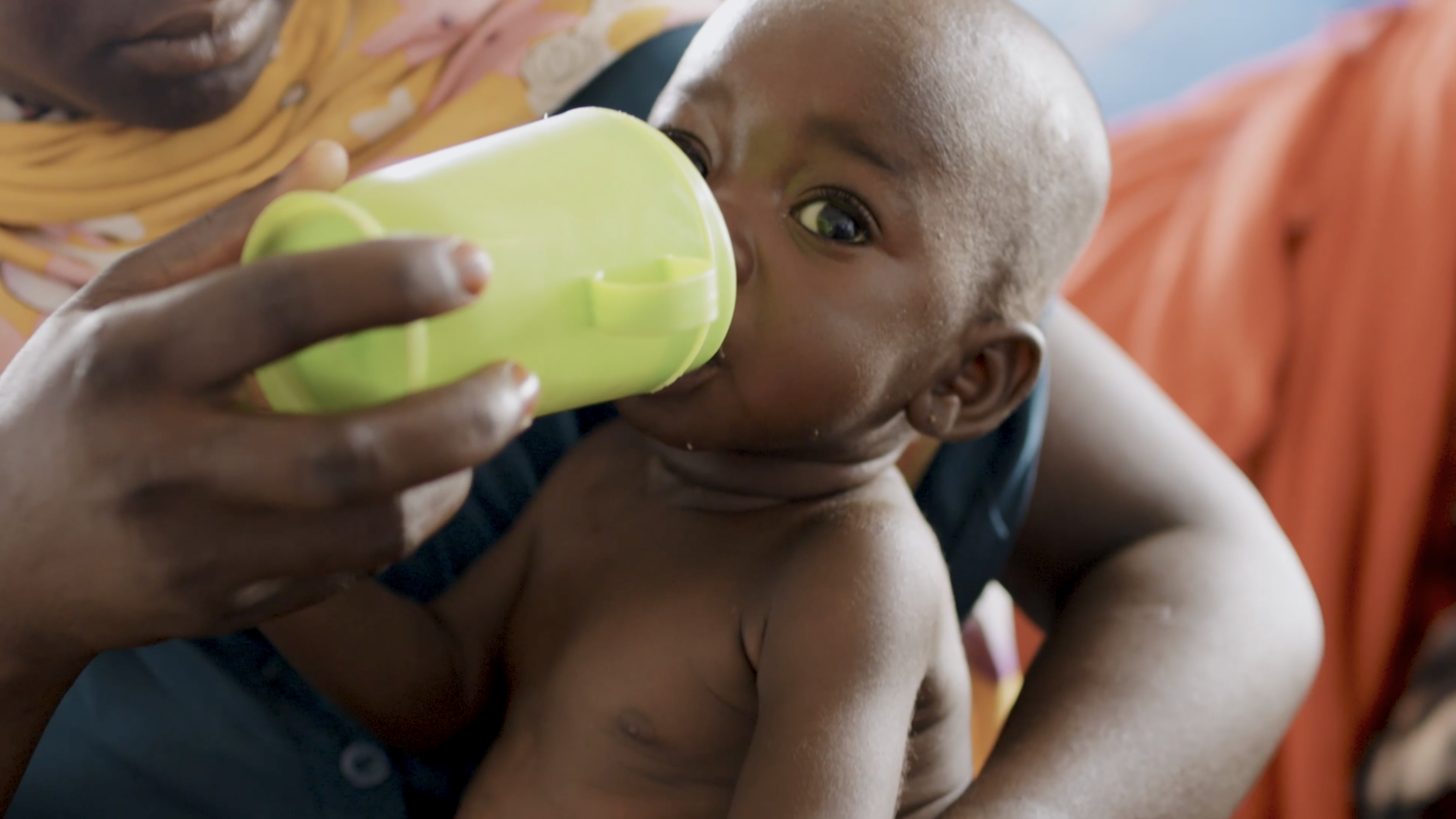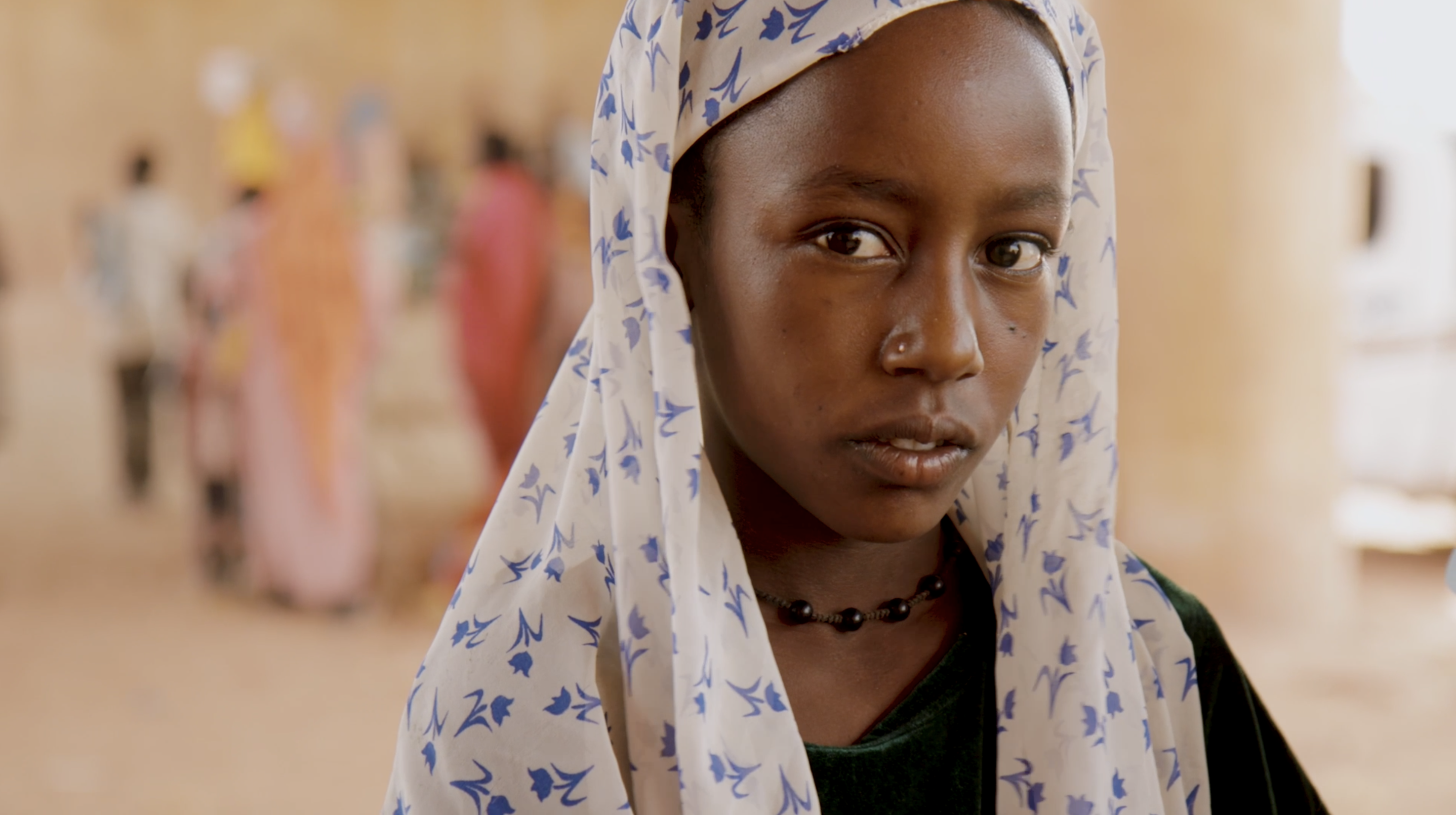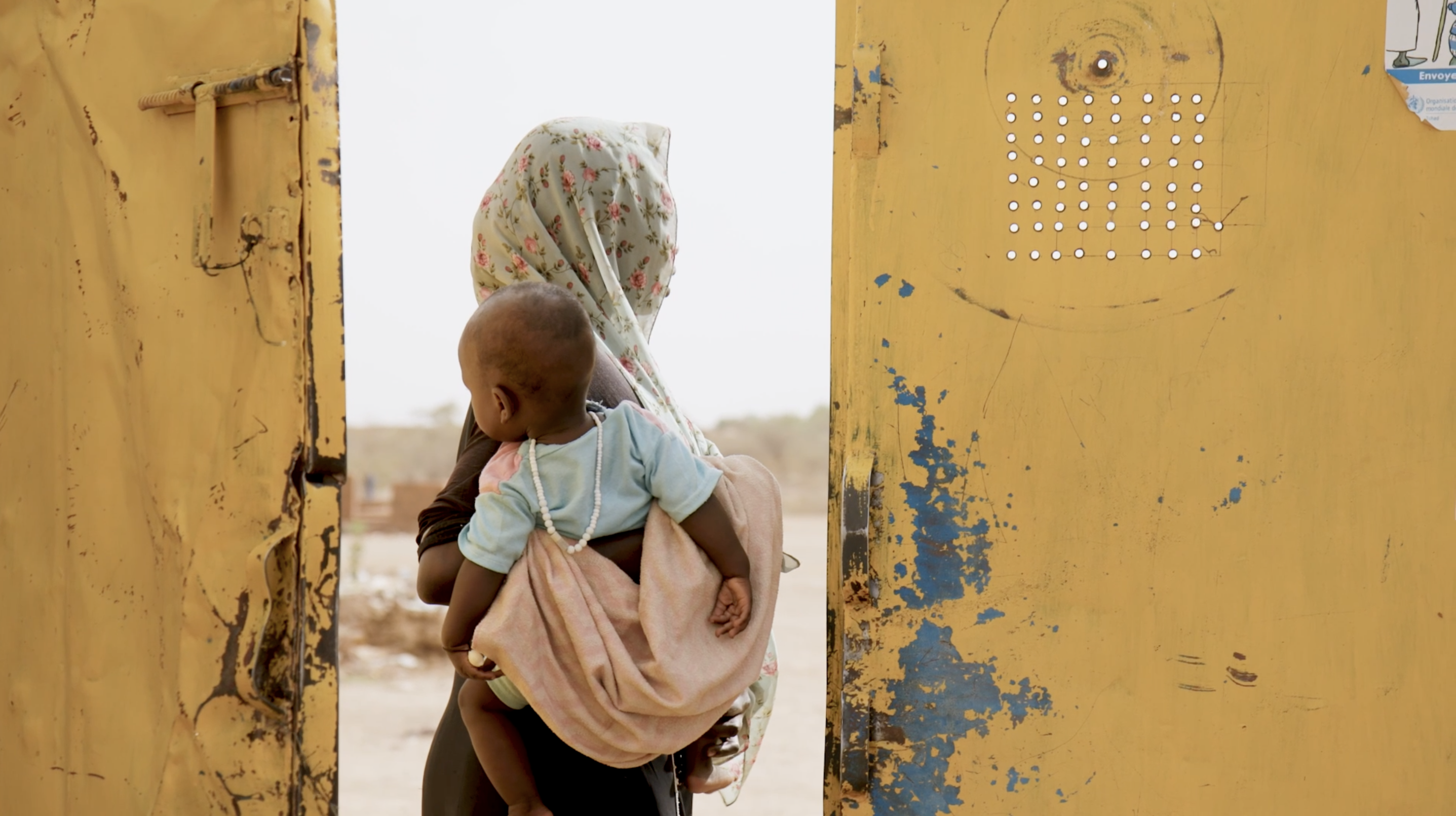Unprecedented
The crisis for children and families in Sudan
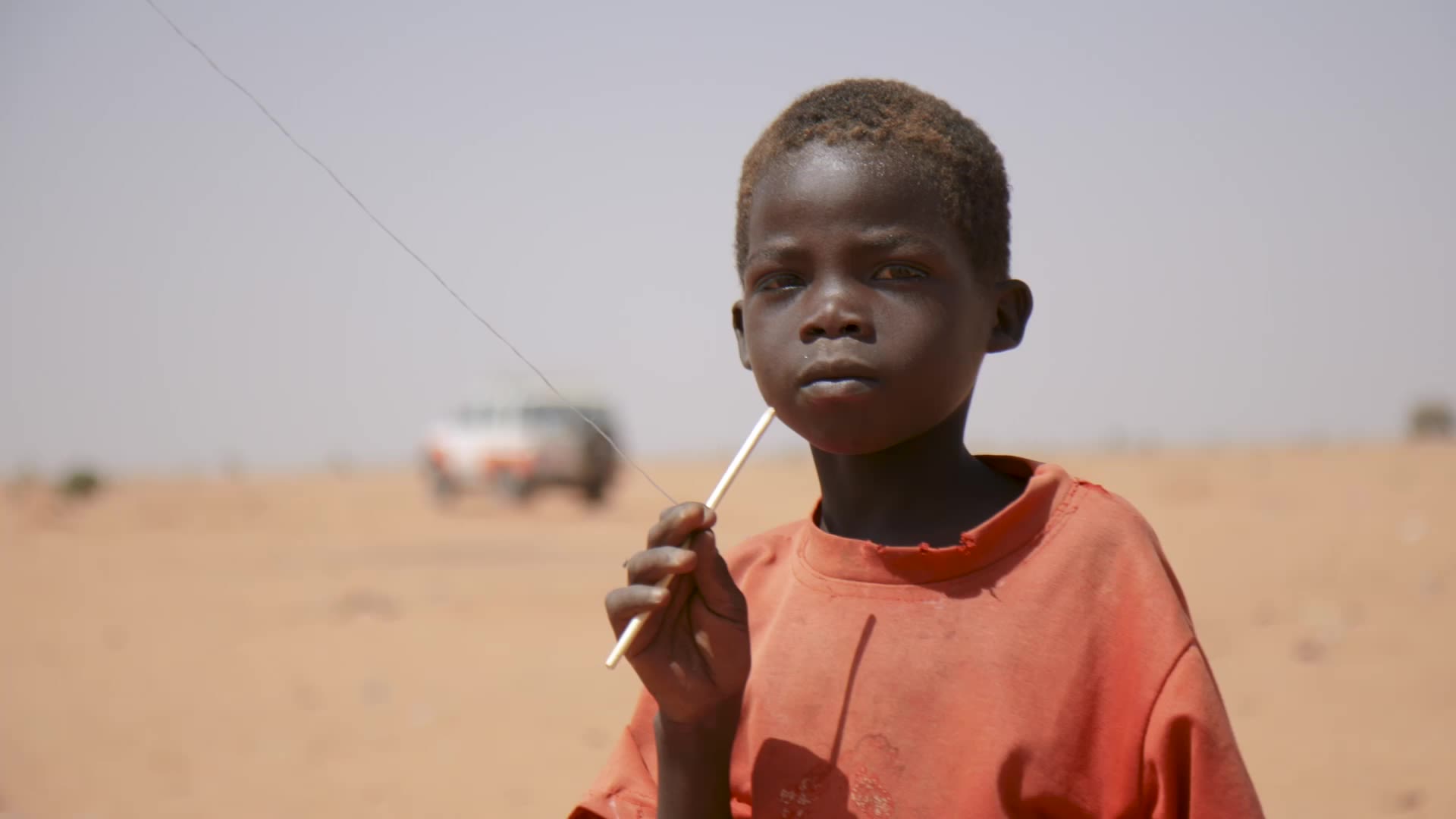
As the world’s gaze is fixed on other conflicts, Sudan has silently slid into the largest child displacement crisis in the world.
In April 2023, a conflict erupted in Sudan that has been raging since, putting the country into disarray and inducing a humanitarian crisis of epic proportions. As we approach the 500th day of conflict, the crisis only deepens.
Hunger in Sudan is not new. But today, the situation is worse:
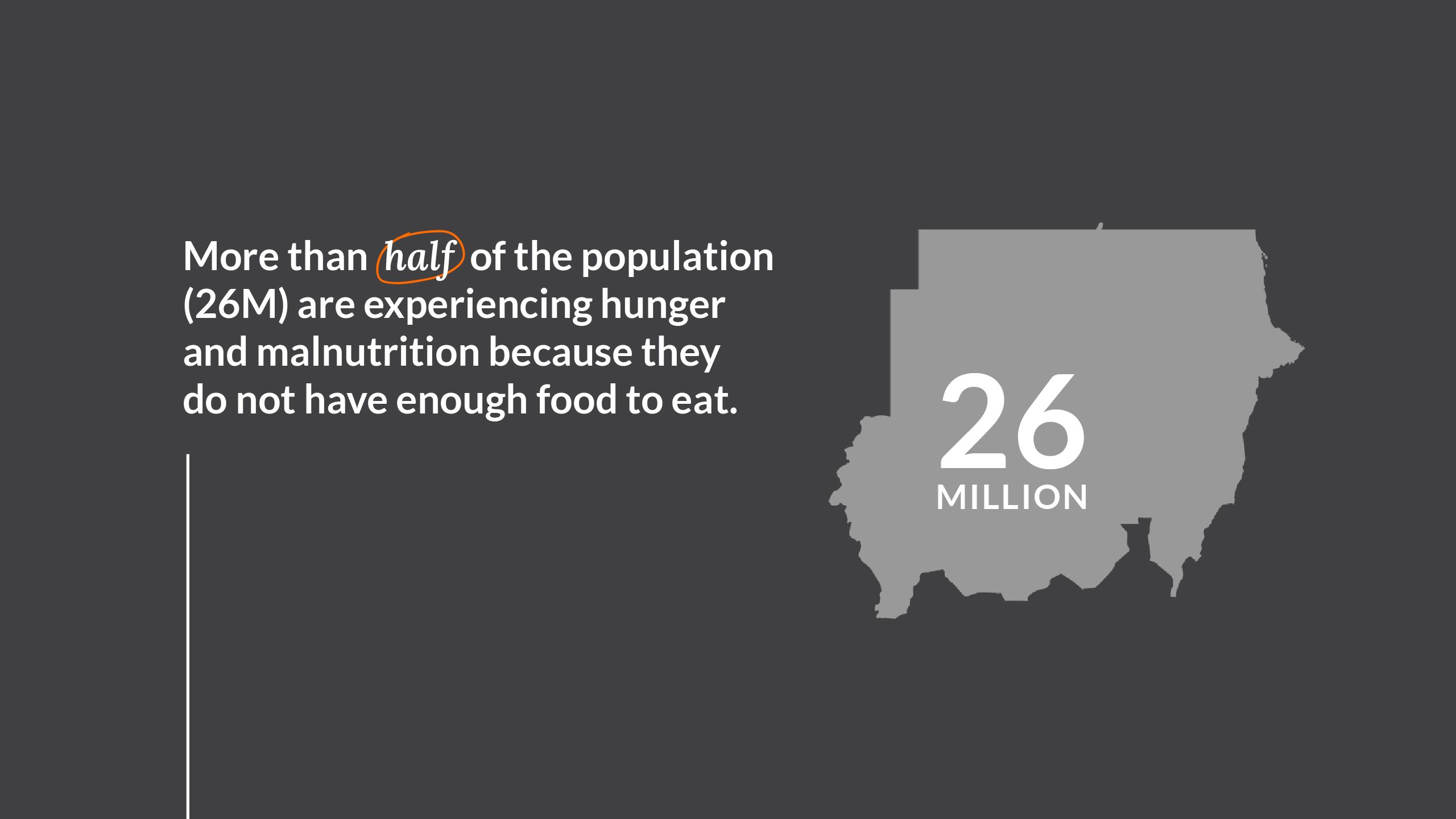
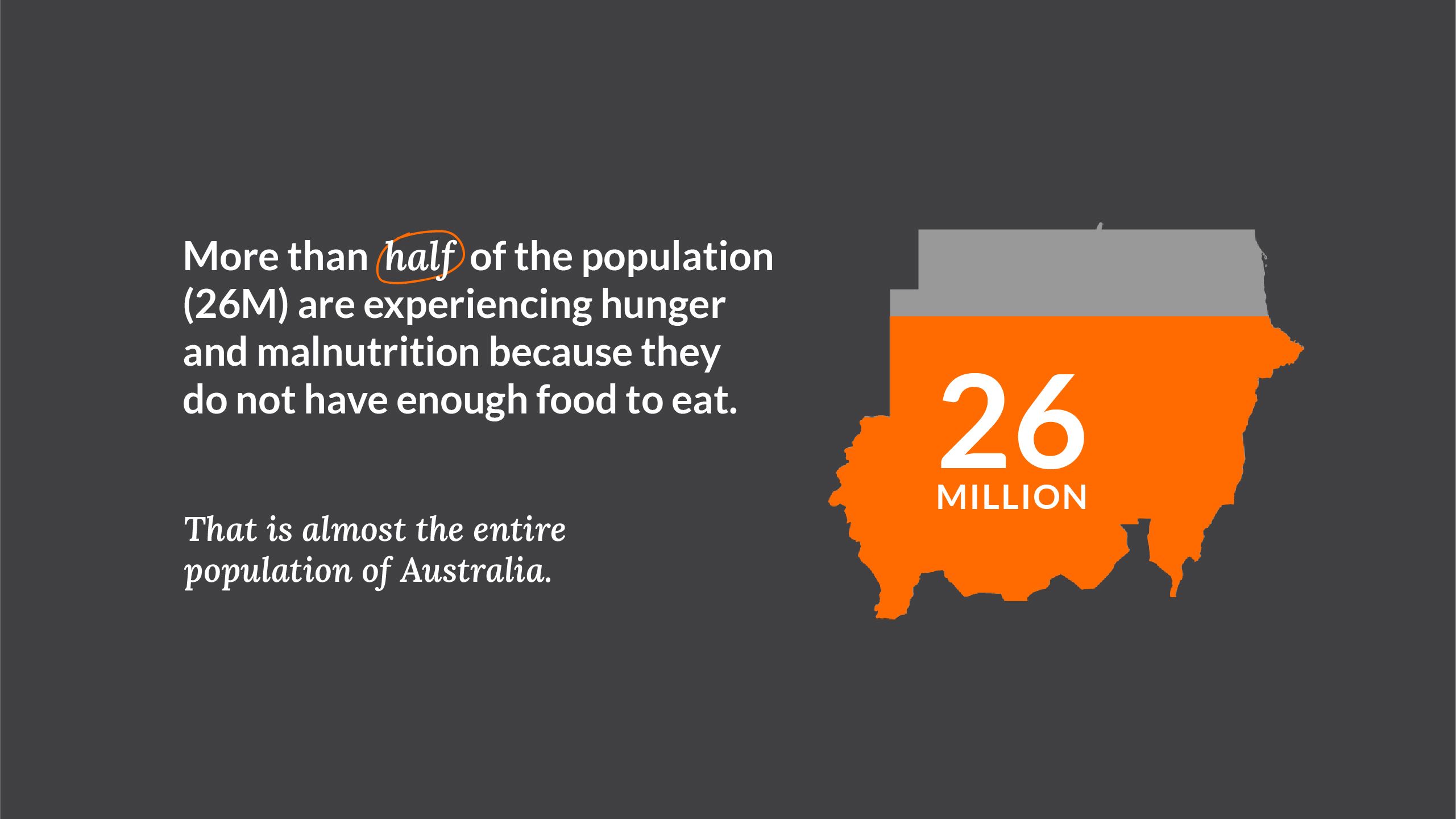
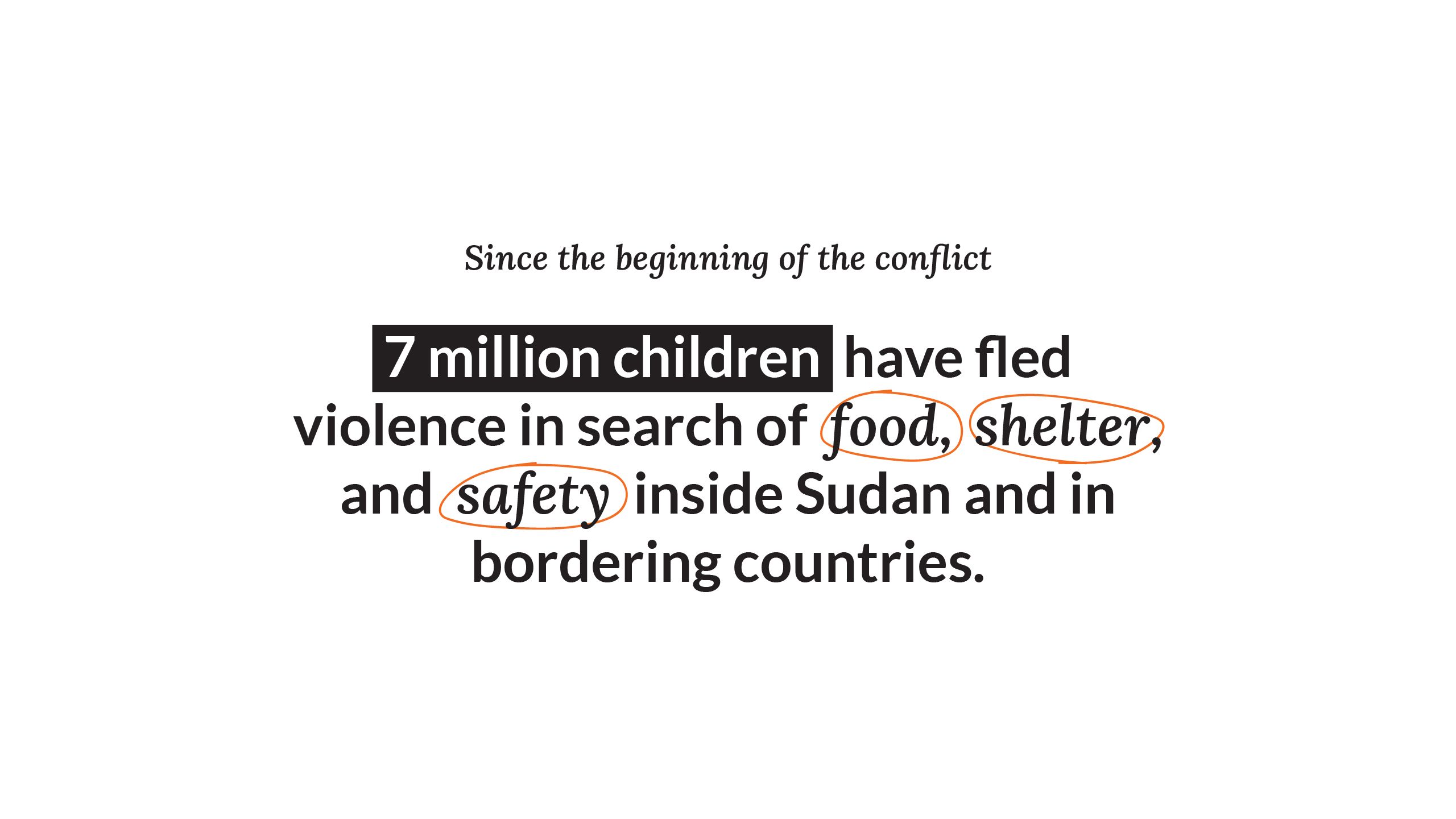
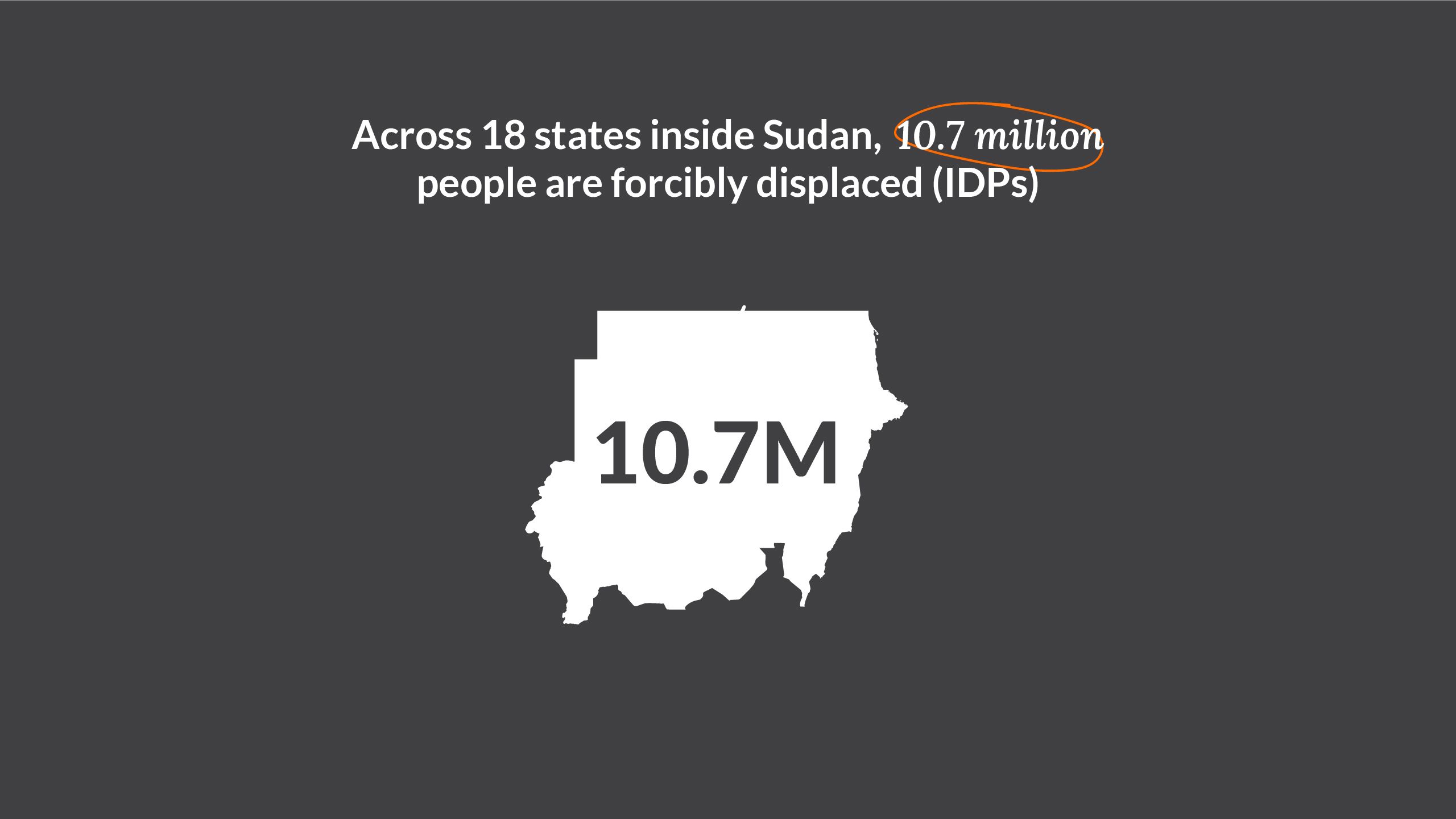
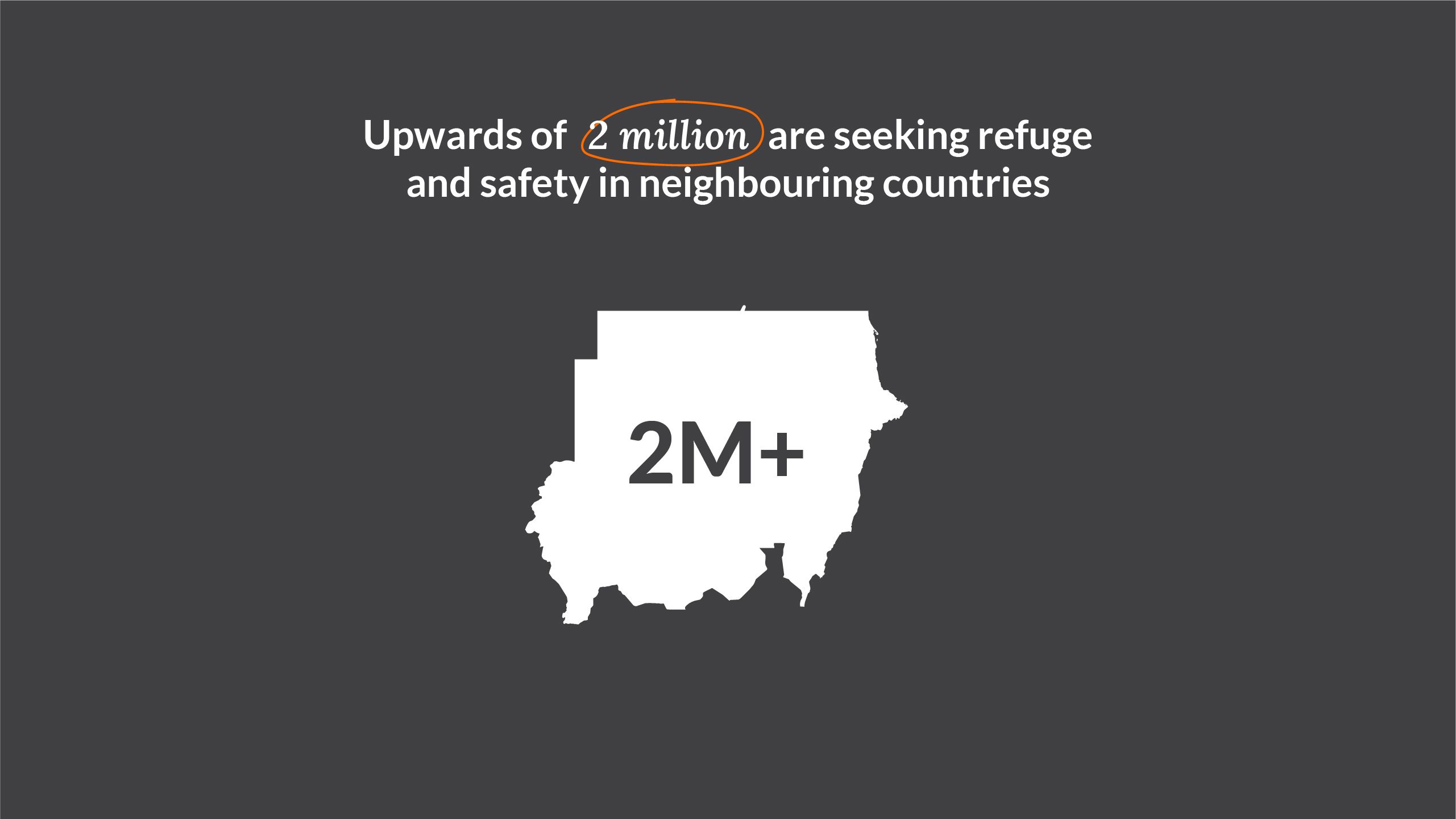
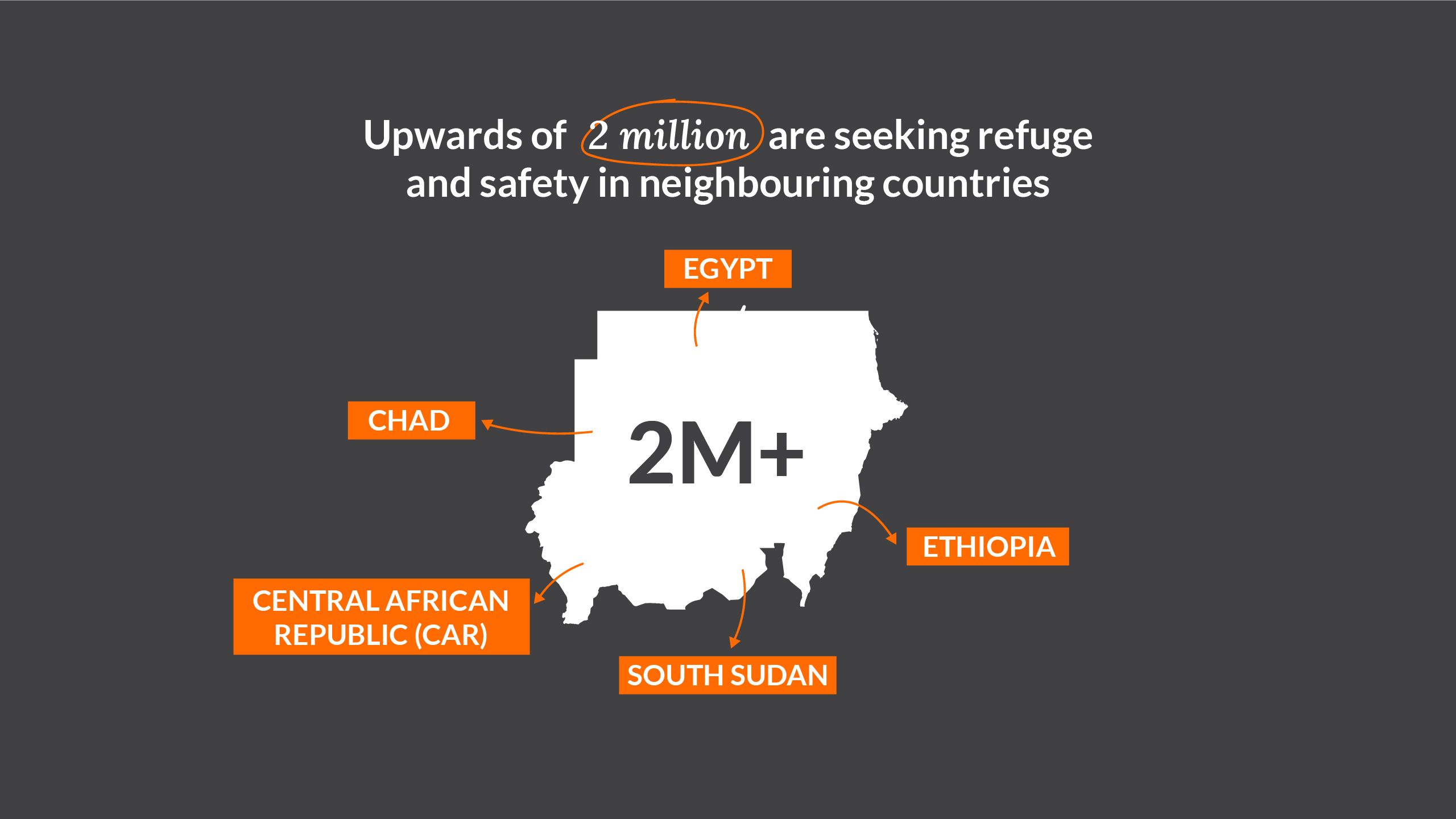
“With every displacement, dreams and childhoods are lost.”
— Lilian Dodzo, World Vision East Africa Regional Leader
Keep scrolling to learn about the takeaways from our latest report:
You can also access the full PDF report with sources, here.
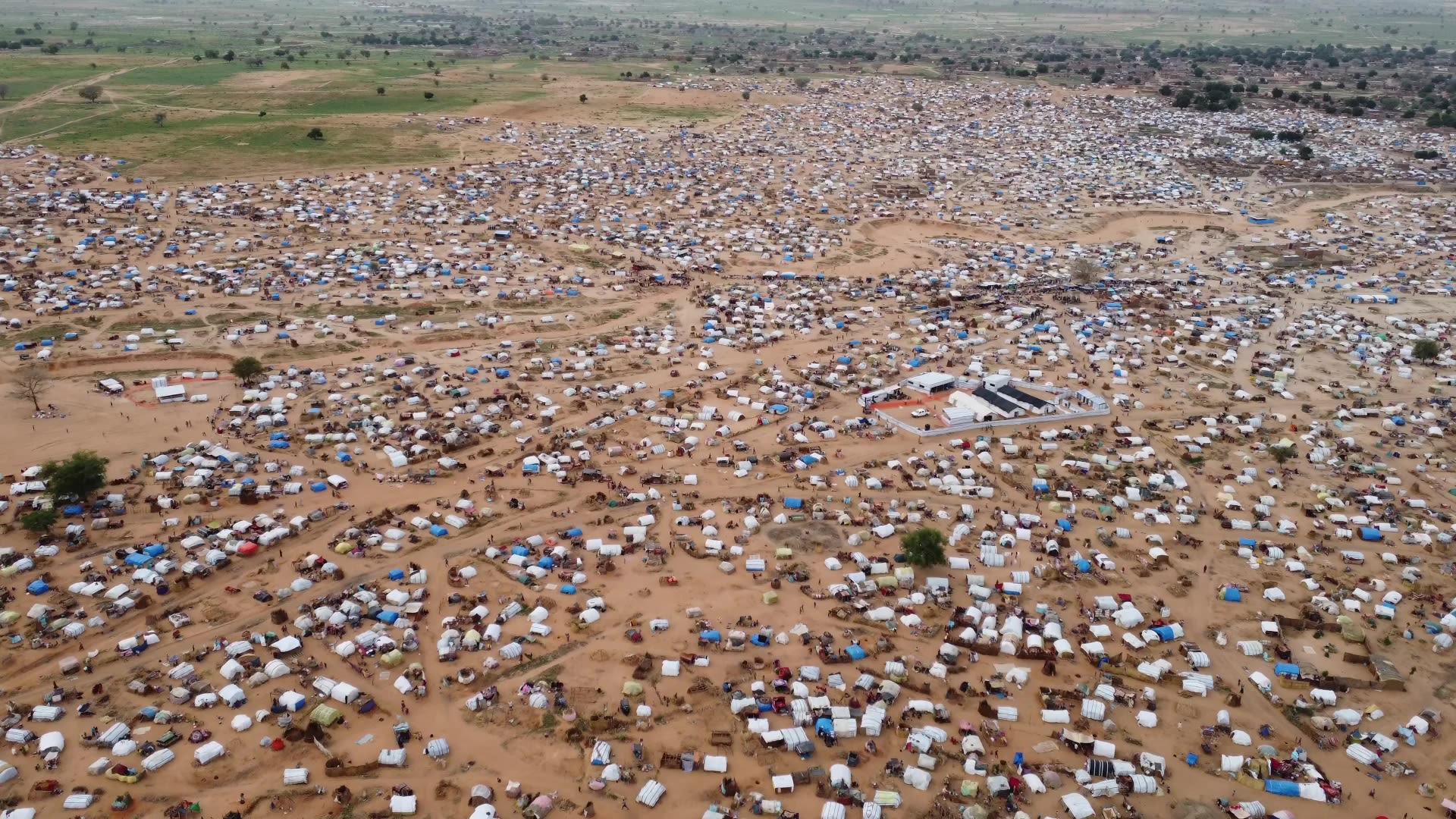
Click to jump to a section or continue to view all report takeaways:
REPORT TAKEAWAY | 01
Unprecedented Hunger
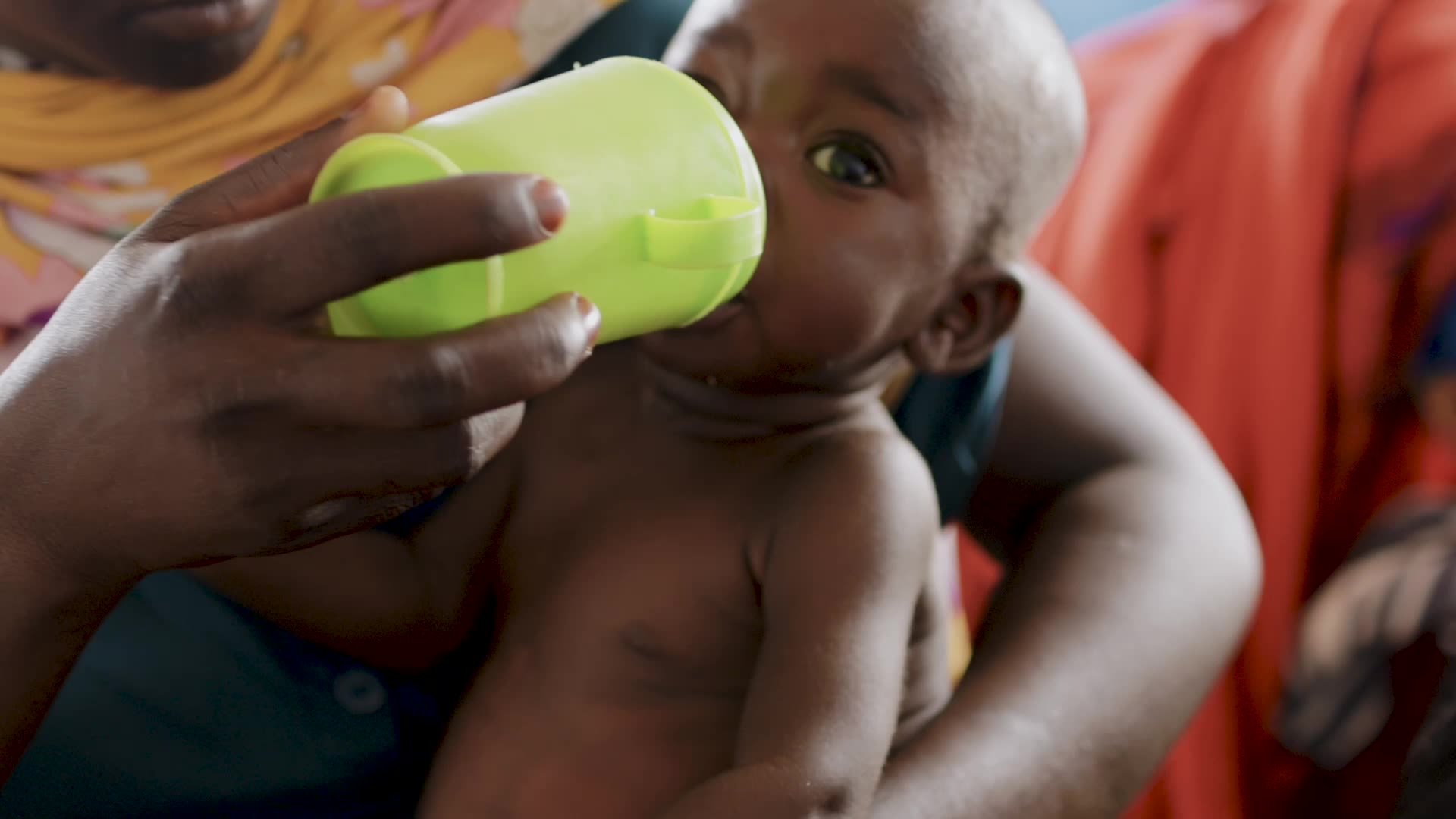
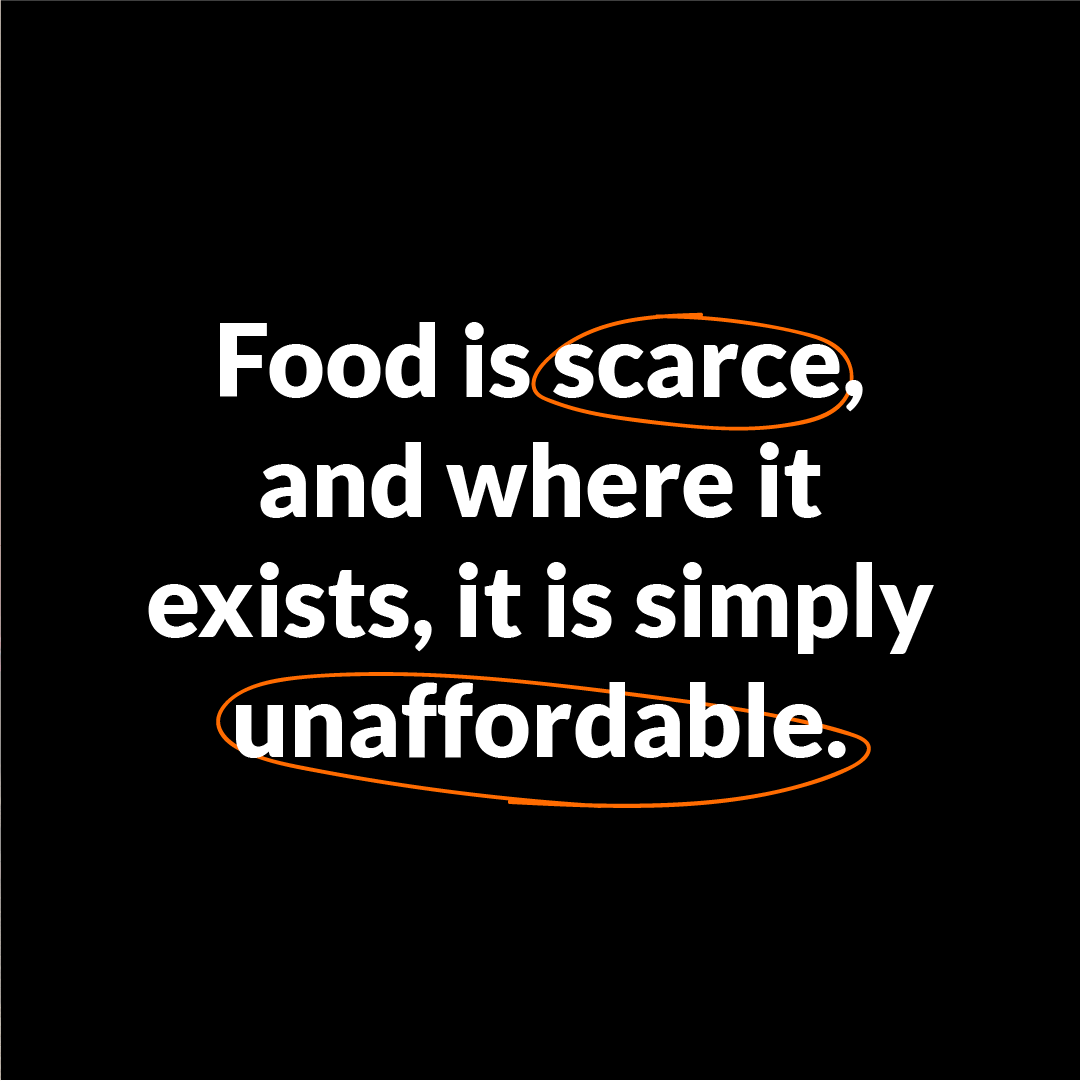
The conflict in Sudan blocks humanitarian aid in an already hunger-stricken country, surpassing even the conditions of 1984-1985 Darfur famine.
Hunger has been weaponised by all parties to the conflict. Sudan hosts the highest number of people in the world, 8.5 million, experiencing “emergency” levels (IPC 4) of acute food insecurity. 755,000 people are in “catastrophic” levels of food insecurity on the brink of famine (IPC 5).”
As of August 2024, famine conditions have been confirmed in North Darfur at Zamzam IDP camp, impacting at least 500,000 people. The reasons for this are complex and multi-faceted:
From breadbaskets to battlefields
Conflict has left farmers unable to grow and tend to much needed crops. Supply chains, seed distribution and agricultural finance have also been disrupted. Simultaneous to the destruction of the agricultural sector, the conflict-related economic downfall induced hyperinflation, raising food prices by 350%.
Even before the crisis, food prices soared for many Sudanese; World Vision research in 2023 determined that it would take the typical worker 14 days to earn enough to buy a food basket of 10 common food items in Sudan, compared to a Canadian who could buy the same 10 items with just 2 hours of work.
Food is scarce, and where it exists, it is simply unaffordable.
Humanitarian organisations in a chokehold
Conflict is preventing people from accessing life-saving food aid. This is because humanitarian organisations are unable to obtain visas for aid workers and permits necessary to move aid across the country continue to be withheld.
In addition to severe funding shortfalls to respond at scale, it is difficult to distribute what life-saving food is available without safe corridors to conflict affected areas.
Today, entire areas and people groups remain unreachable and fertile lands are left unfarmed. In Zamzam camp, it is estimated that a child is dying every two hours, many due to severe malnutrition.
The importance of cash
Cash donations are often the most cost-efficient form of giving in dire crises, such as the one happening in Sudan. Cash reduces logistical costs and waste, ensuring more resources go directly to those in need. Cash allows aid operators expediency in targeted spending while adapting to changing circumstances on the ground. Cash donations can empower families with a sense of dignity to prioritise what they need most and help stimulate local economies which is critical for long-term recovery.
World Vision has been implementing cash and voucher programmes in Sudan since May 2013. From April 2023 onwards, World Vision has continued to deliver sector specific and multi-purpose cash assistance, providing 23,700 people with US $1.4 million, despite challenges of security and liquidity.
Want to make a donation to help support World Vision’s work in Sudan? Click here.
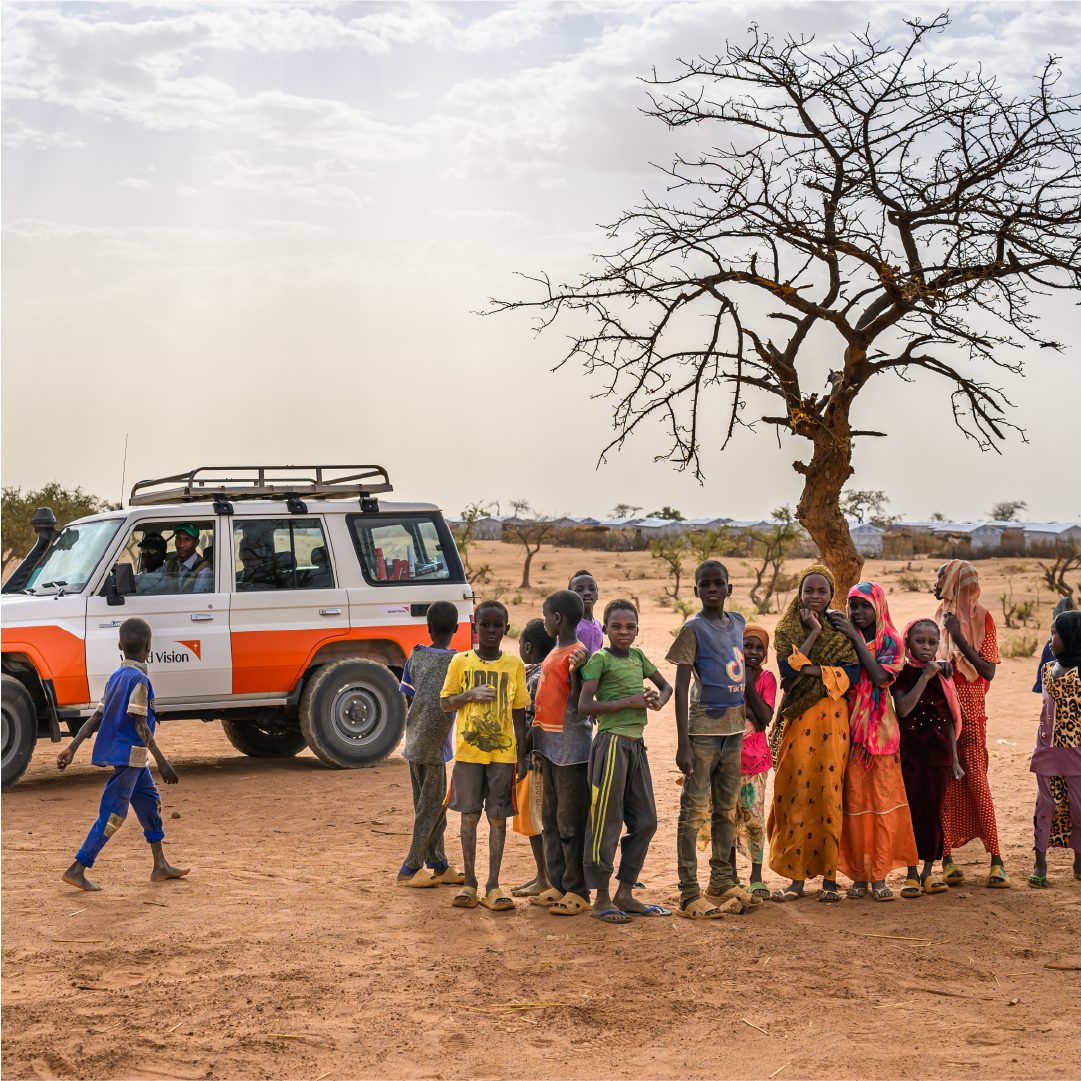
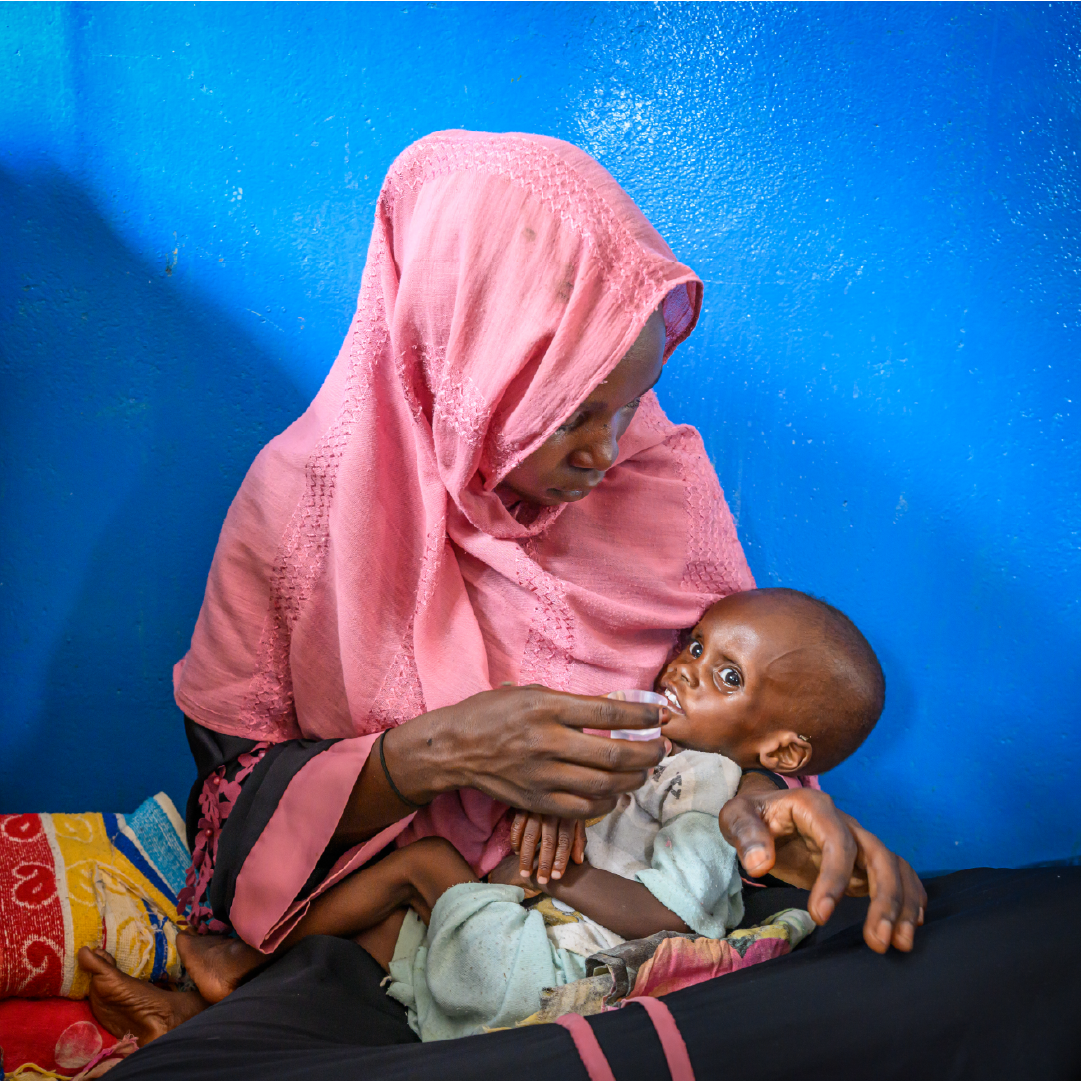
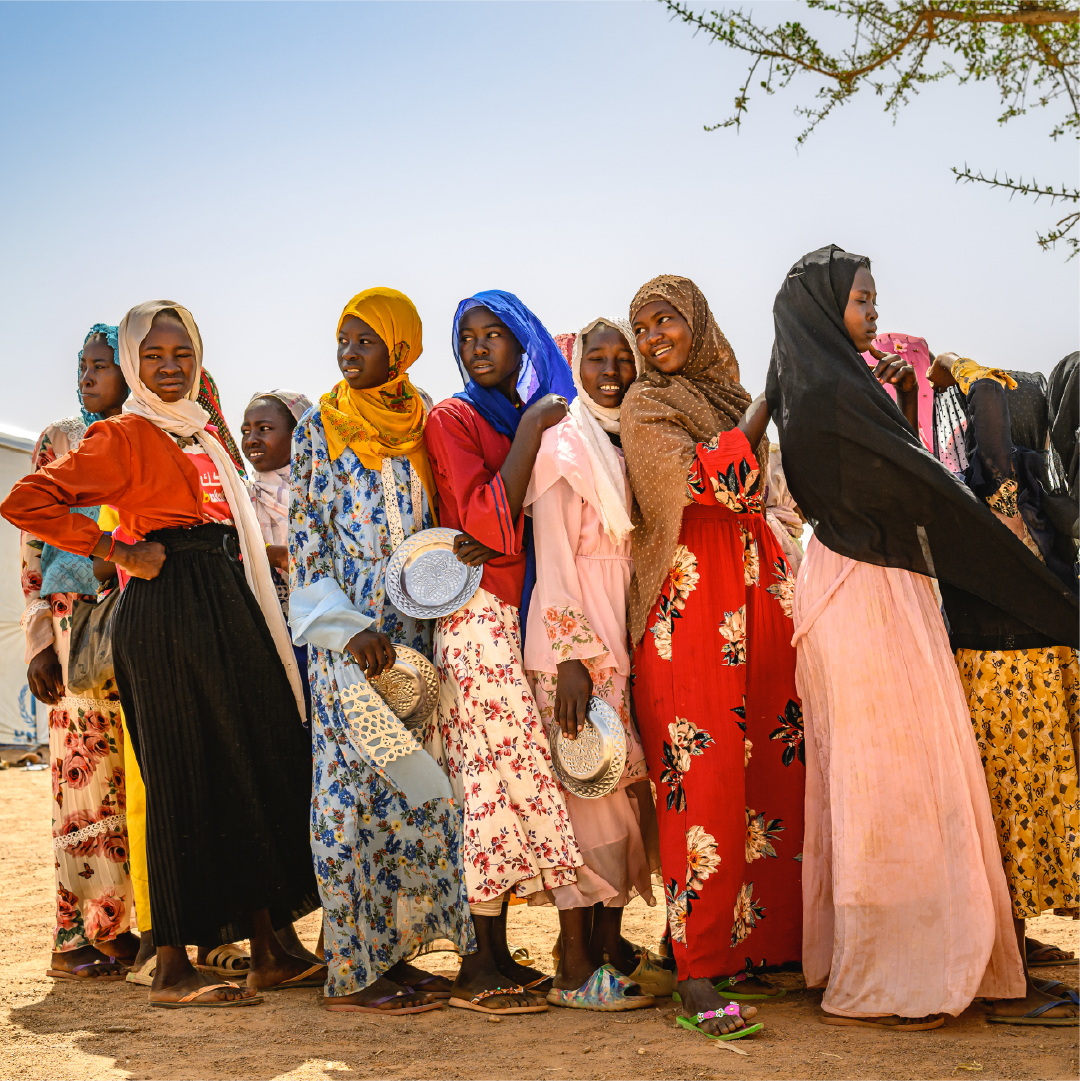
REPORT TAKEAWAY | 02
Mental Health Tragedy
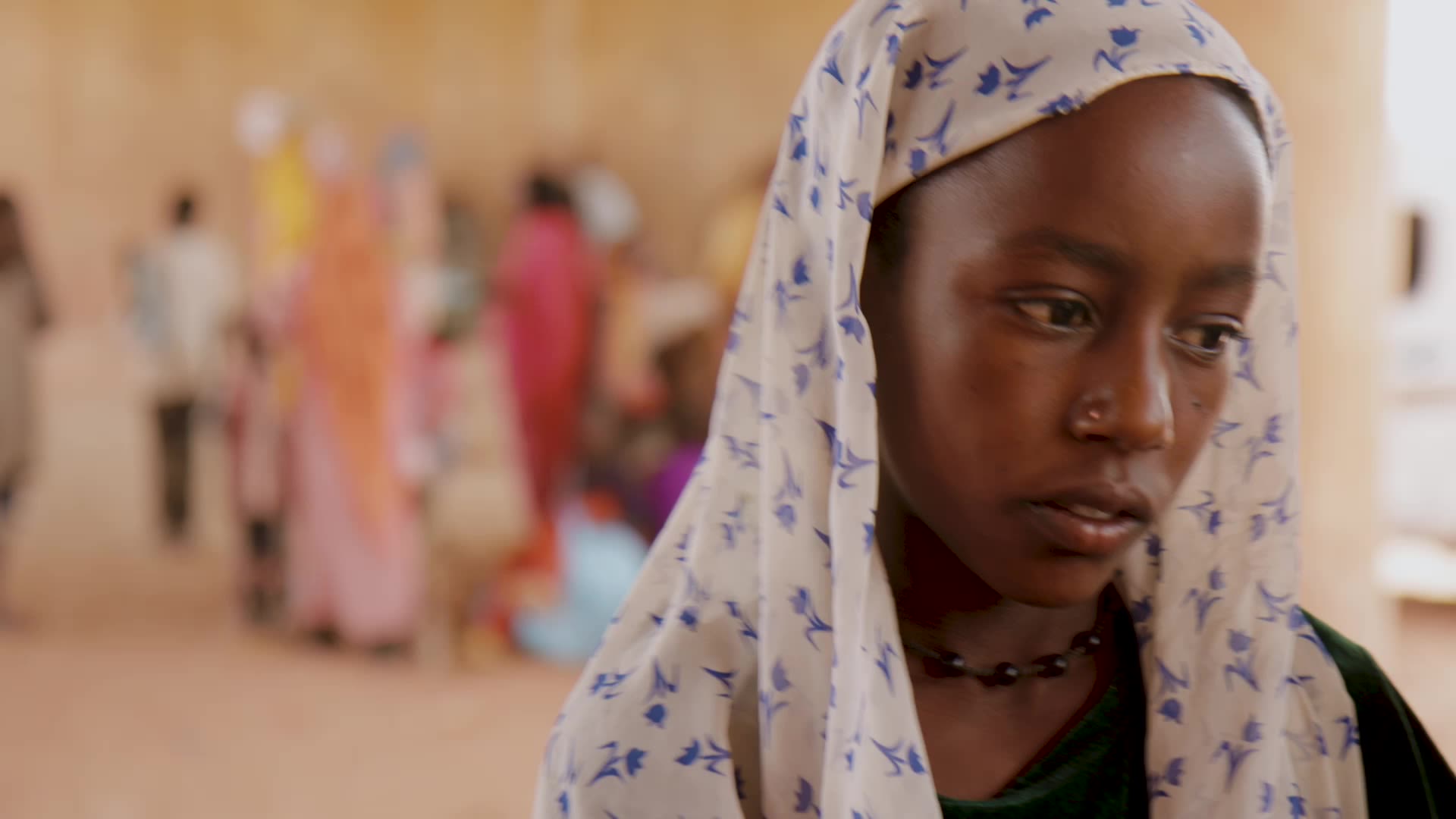
A mental health crisis looms, and the impact could ripple across many generations, threatening prospects for Sudan’s ability to recover.
Before the crisis in 2023, the mental health outlook for people in Sudan was already bleak. Economic strains and longstanding civil instability fuelled widespread poverty, and the country’s healthcare system was already stressed.
Limited capacity
Sudan had an extreme shortage of healthcare workers – only 4 for every 10,000 people – even before the surge in conflict. According to WHO, resources for mental health were especially limited; in 2020, two psychiatric hospitals and 12 units in general hospitals provided all inpatient psychiatric care to the entire population of 43 million people in Sudan.
There were only 34 general psychiatrists, and only four child psychiatrists in the whole country.
Mental health for the Sudanese has and continues to be underdeveloped. Physicians lack knowledge and training, and the stigma towards mental illness throughout the African continent both from the public and healthcare professionals adds an additional layer of burden towards effective psychosocial support in Sudan.
The current crisis has brought additional assaults on Sudan’s healthcare system; health workers and facilities continue to be targeted. Within six months of armed conflict, 70% of health facilities ceased to operate.
Hunger and mental health
Food security also has a profound impact on the mental health of children and adults alike; hunger is a psychological stressor that can lead to disorders such as depression, anxiety, shame, or stress.
Research conducted during the COVID-19 pandemic uncovered that people in stable contexts who experienced food insecurity were at more than 250% higher risk of anxiety and depression.
A previous World Vision report estimated that the combined effects of food insecurity and conflict would result in a 57% prevalence of mental health disorders.
This means that an estimated 15.7 million children and families impacted by the crisis in Sudan may be at risk of mental health conditions because of the twin crises of conflict and hunger.
A lasting legacy
The compounding mental health impacts of hunger and conflict are likely to leave a lasting imprint on Sudanese society, making it more difficult for families to return to stability.
Even after children find safety, they will struggle to process the horrific events they experienced. Childhood trauma can impact mental and physical health, cognitive development, and social behaviour, posing challenges that can ripple across a lifetime and for generations.
World Vision implements Mental Health and Psychosocial Support (MHPSS) programming in emergency responses and development contexts in nearly 70 countries. Our global reach and grassroots operations help ensure children and families impacted by conflict, disasters, and other drivers of poverty get the service they need and are not left with moderate or severe mental health disorders that can affect their everyday life and future well-being.
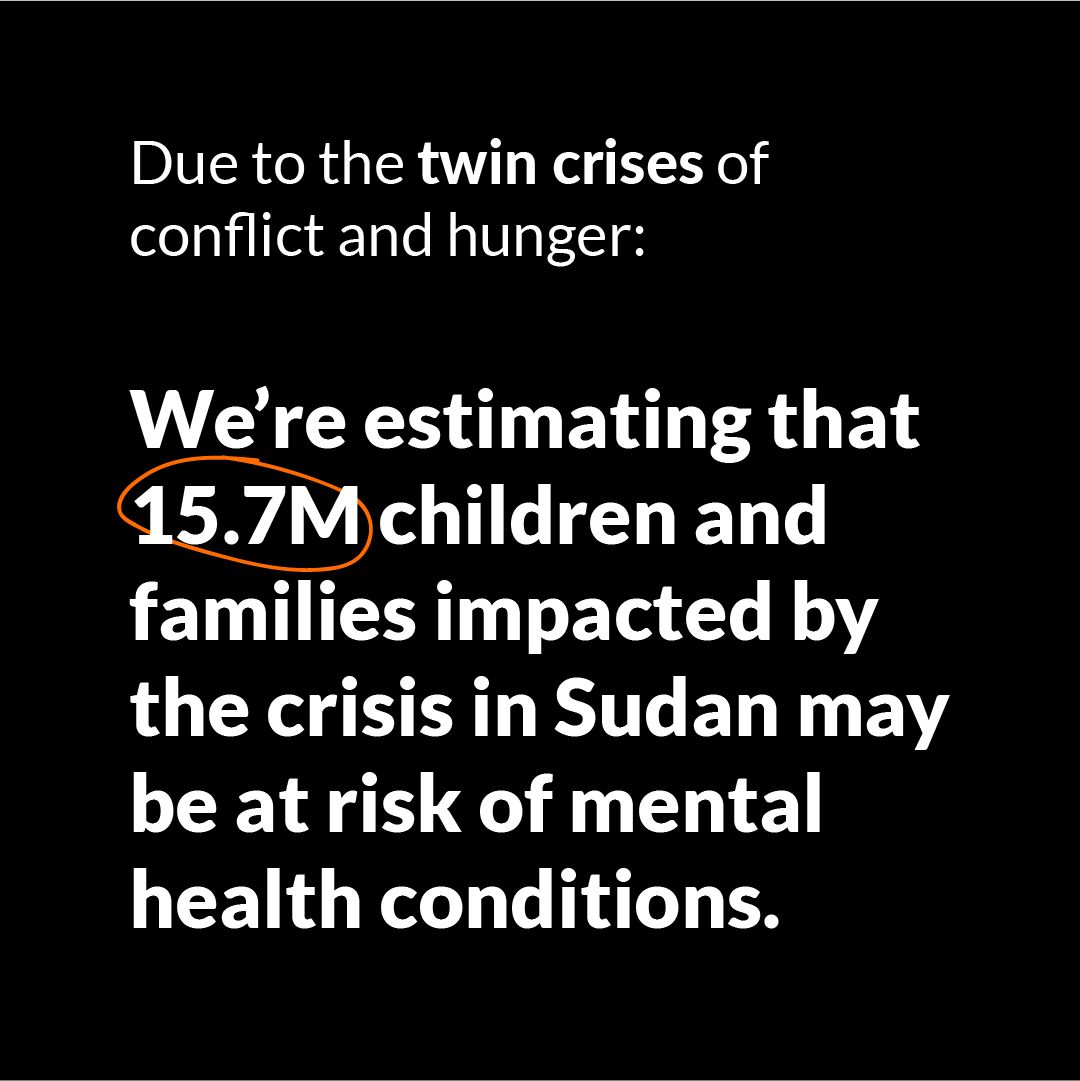
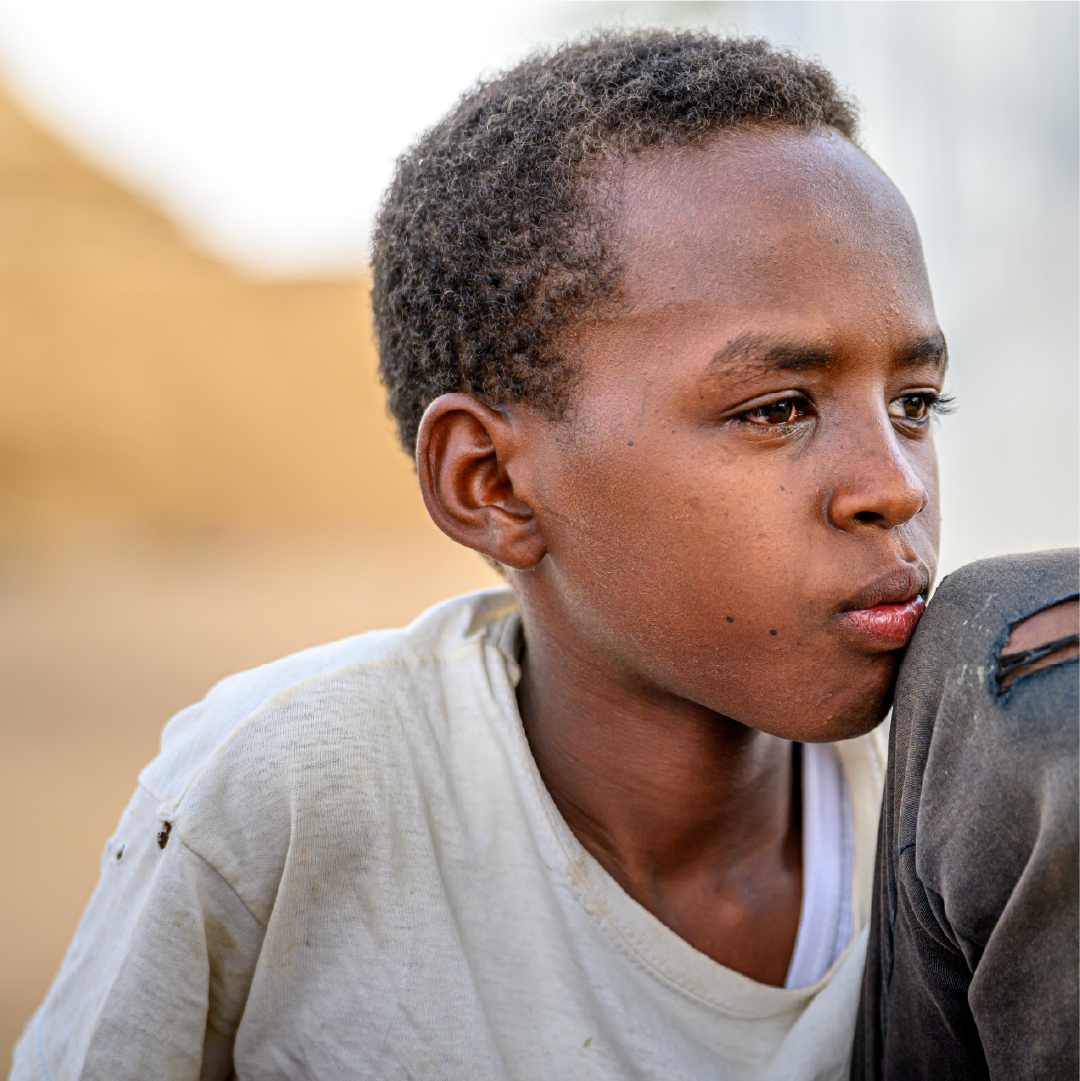
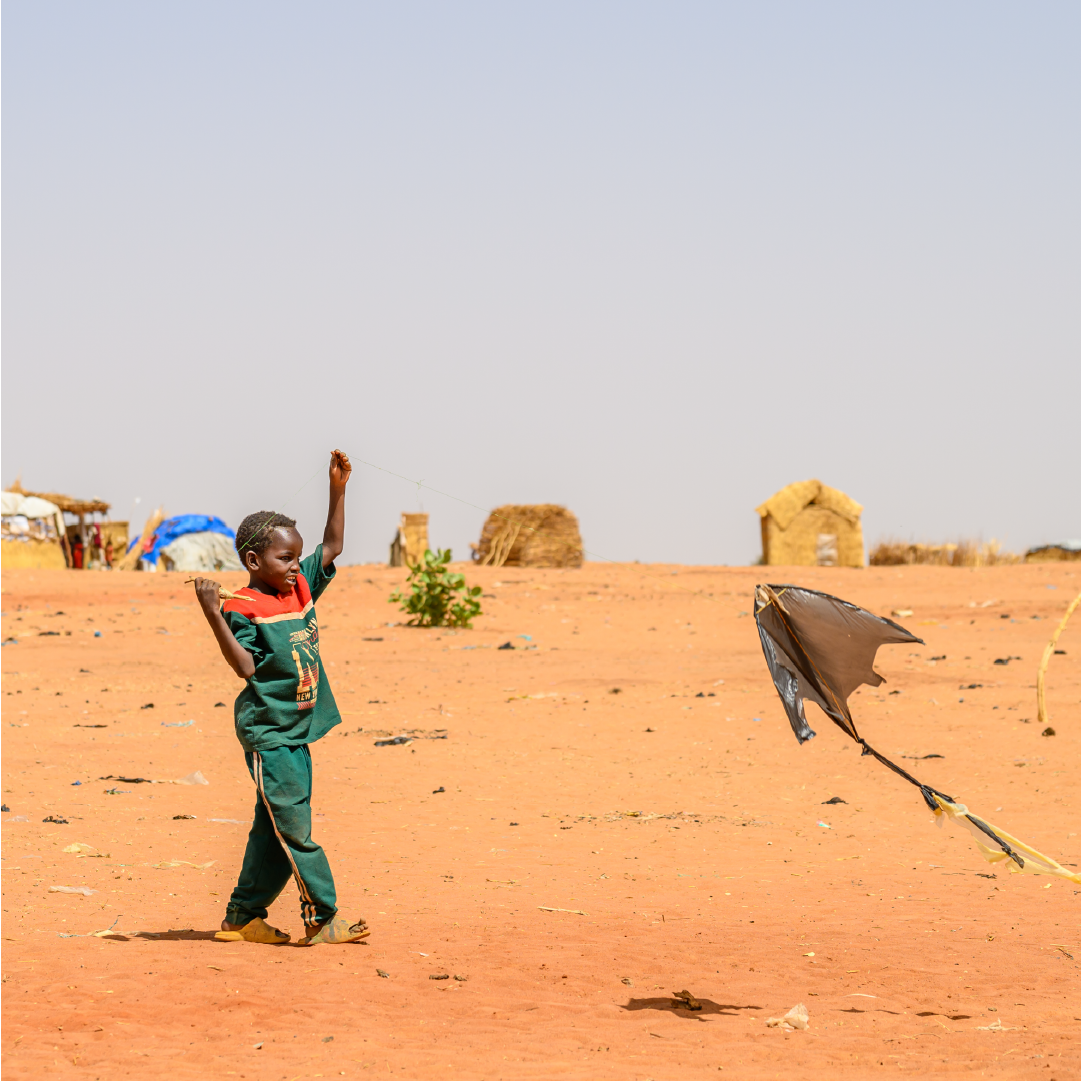
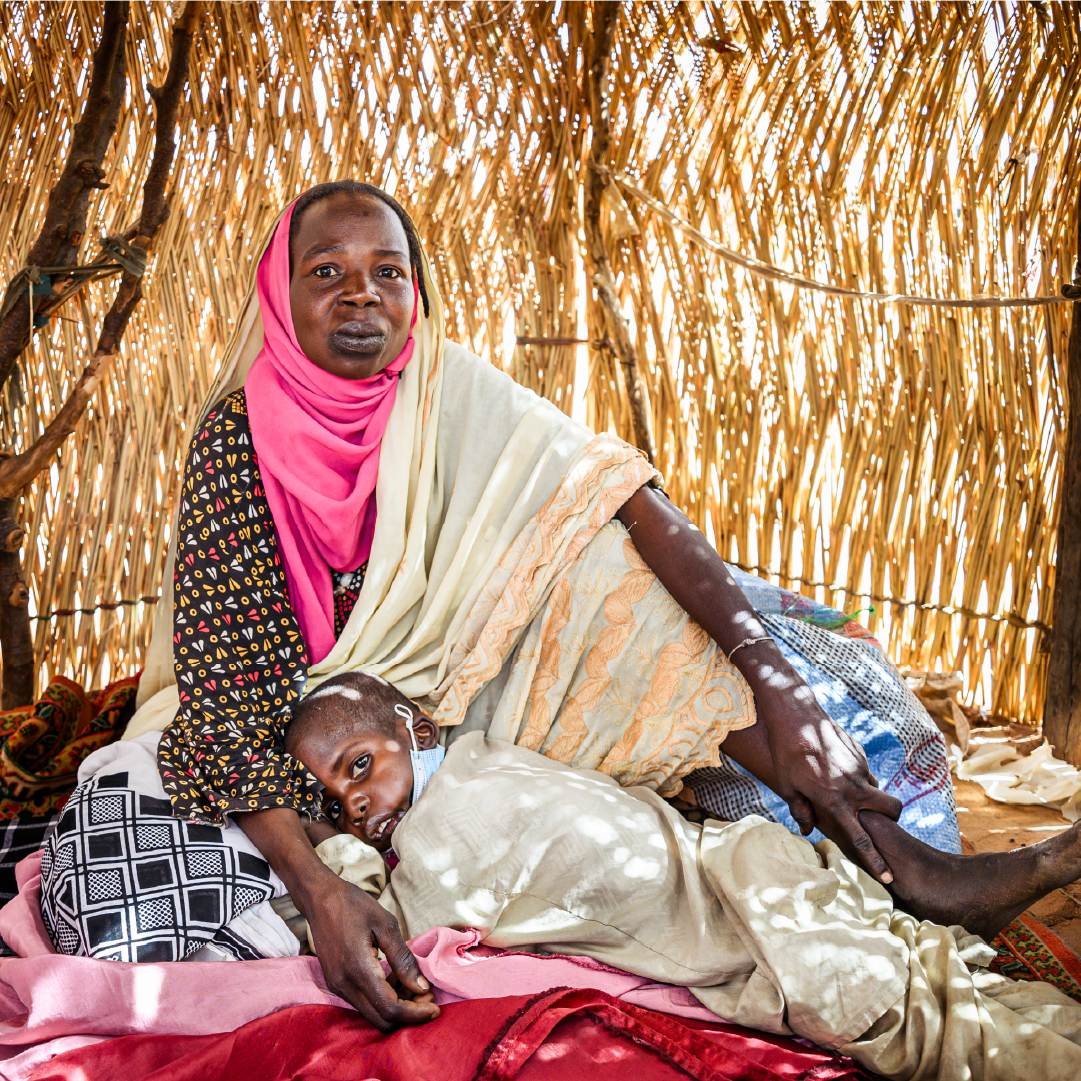
REPORT TAKEAWAY | 03
Surging Gender-based Violence
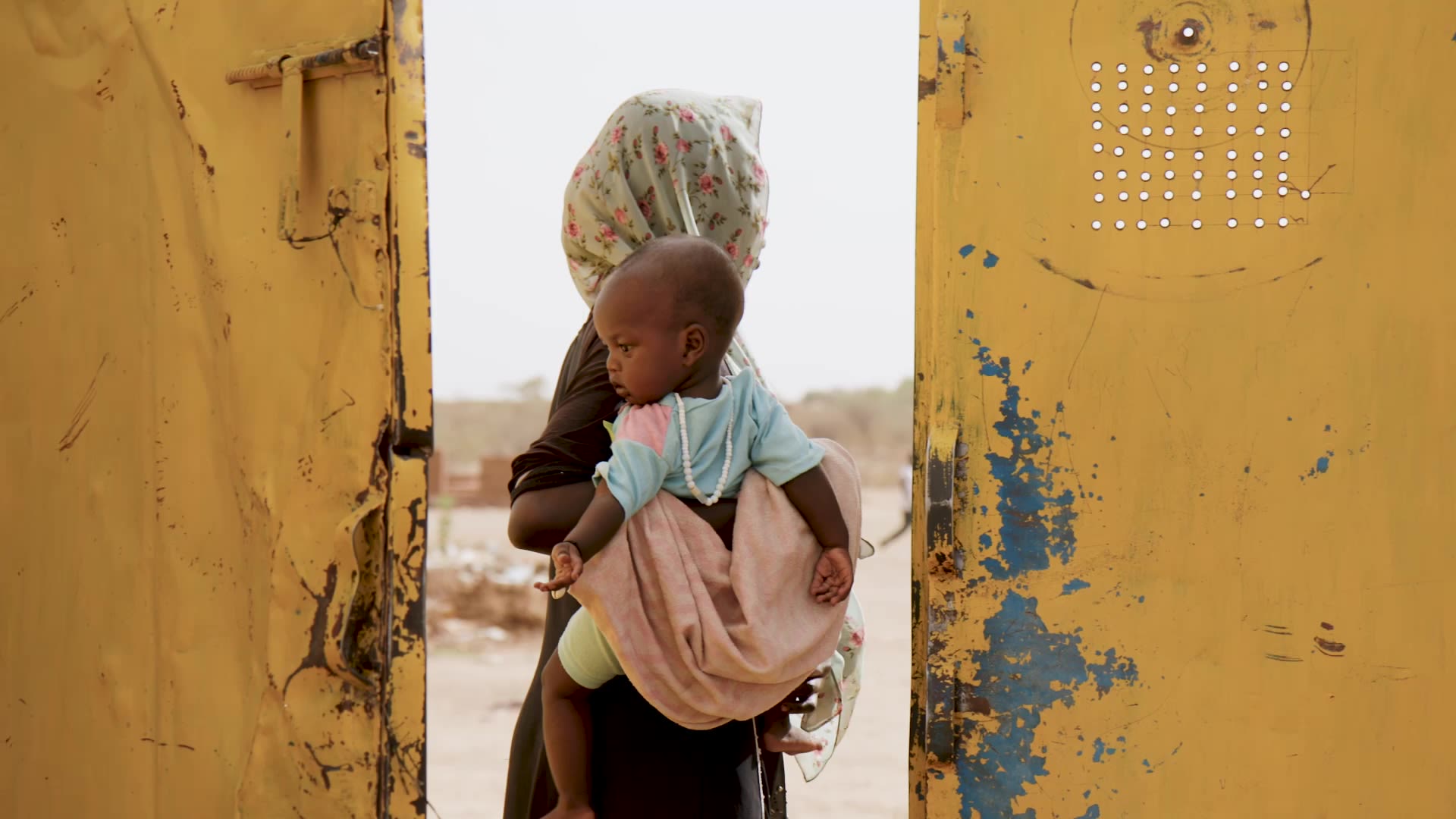
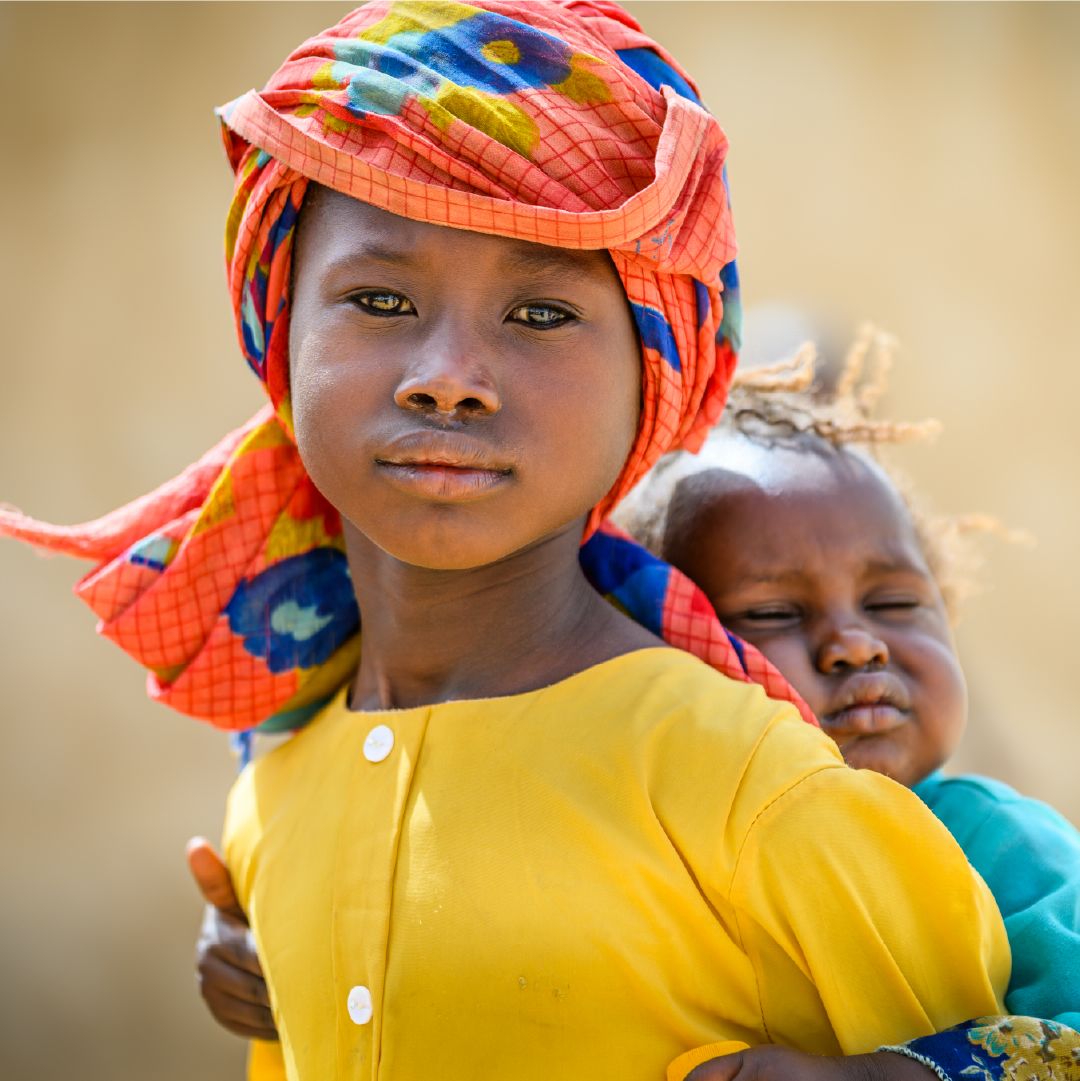
Gender-based violence is widespread and weaponised, leaving significant physical and psychological injuries on women and girls with few sources of medical and psychosocial support.
Women and girls at highest risk
UNFPA estimates that 6.7 million people are at risk of gender-based violence in Sudan, mostly women and girls, and particularly those who are displaced, with survivors being as young as 9 years old. Although women and girls who are displaced, migrant or refugee are at particular risk of gender-based violence, men and boys are also impacted.
Displaced women and girls inside Sudan face heightened risk of specific forms of gender-based violence, including rape, sexual assault, and sexual harassment while walking long distances to collect firewood, fuel for cooking or water. These risks are worsened by insufficient water, sanitation and hygiene (WASH) facilities and shortages of drinking water, requiring women and girls walking longer distances to access water.
One in five
Recent research suggests that approximately one in five refugee or displaced women in complex humanitarian settings have experienced sexual violence.
A recent study from South Sudan, revealed that up to 65% of women report having experienced intimate partner and sexual violence, a rate double the global average.
The presence of armed actors, displacement, broken social and protective networks, and lack of services create an environment where women and girls are at acute risk of gender-based violence. Communities are also more likely to resort to gender-based violence as harmful coping mechanisms to deal with insecurity and escalating humanitarian needs, such as sexual exploitation and child marriage.
While data and statistical evidence contribute towards depicting the realities of gender-based violence, they are often unreliable. Many cases go unreported. However, what we do know draws an unmistakably alarming picture.
Hindered recovery for gender-based violence survivors
With a collapsed healthcare system, access to medical treatment, birth control and emergency contraception are scarce. Women’s and girls’ fear of sexual violence is evident on social media platforms, where they seek and share desperate preventative methods to avoid being assaulted, such as defecating on oneself to deter aggressors. Some women have even considered suicide as a result of the violence.
To make matters worse, survivors’ physical and psychological recovery is hindered by cultural stigma around sexual violence and rape can lead to ostracisation, sometimes disrupting family structures, further deepening their trauma.
What is World Vision doing?
We are carrying out protection interventions in Sudan through a joint protection mission in partnership with the Commission of Refugees. Regular meetings are conducted to discuss strategies for safeguarding refugees from harm and abuse. Our projects allow children to report incidents of violence they may experience. We offer survivors medical, food, and transportation support in addition to psychosocial support.
To help prevent gender-based violence, we conduct awareness sessions on early marriage, exploitation, violence against women, domestic violence, and female genital mutilation. We also referred survivors to specialised services for further action and follow-up.
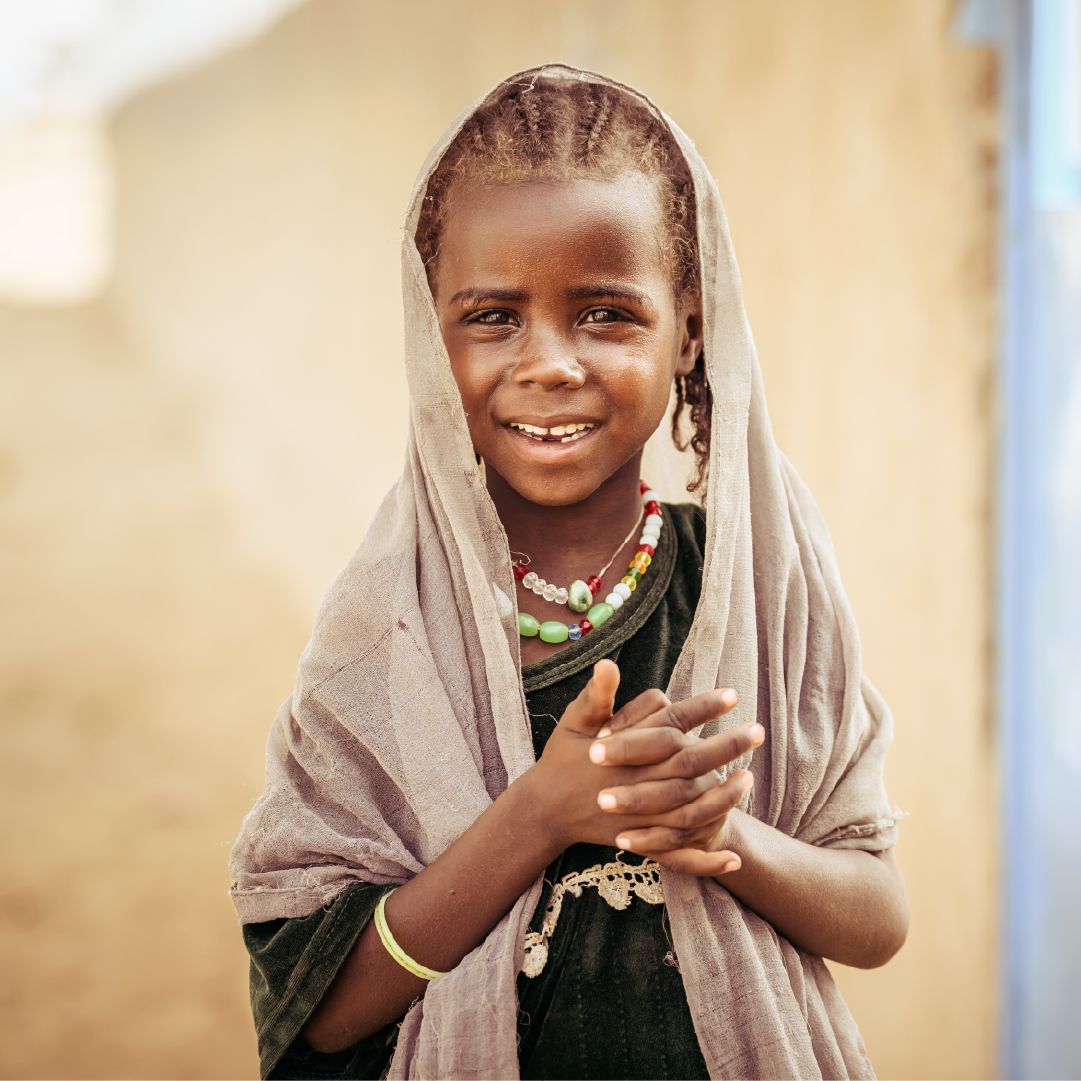
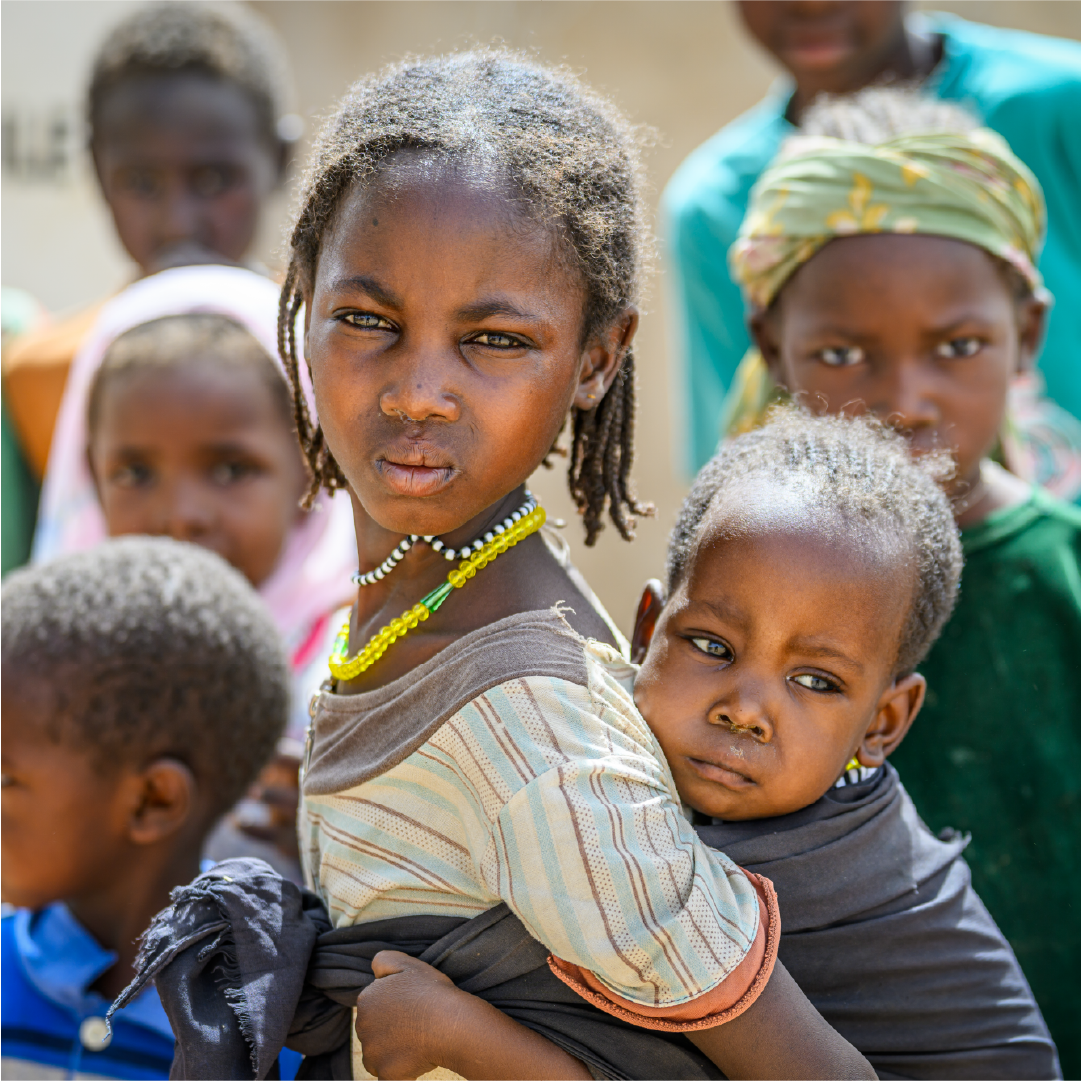
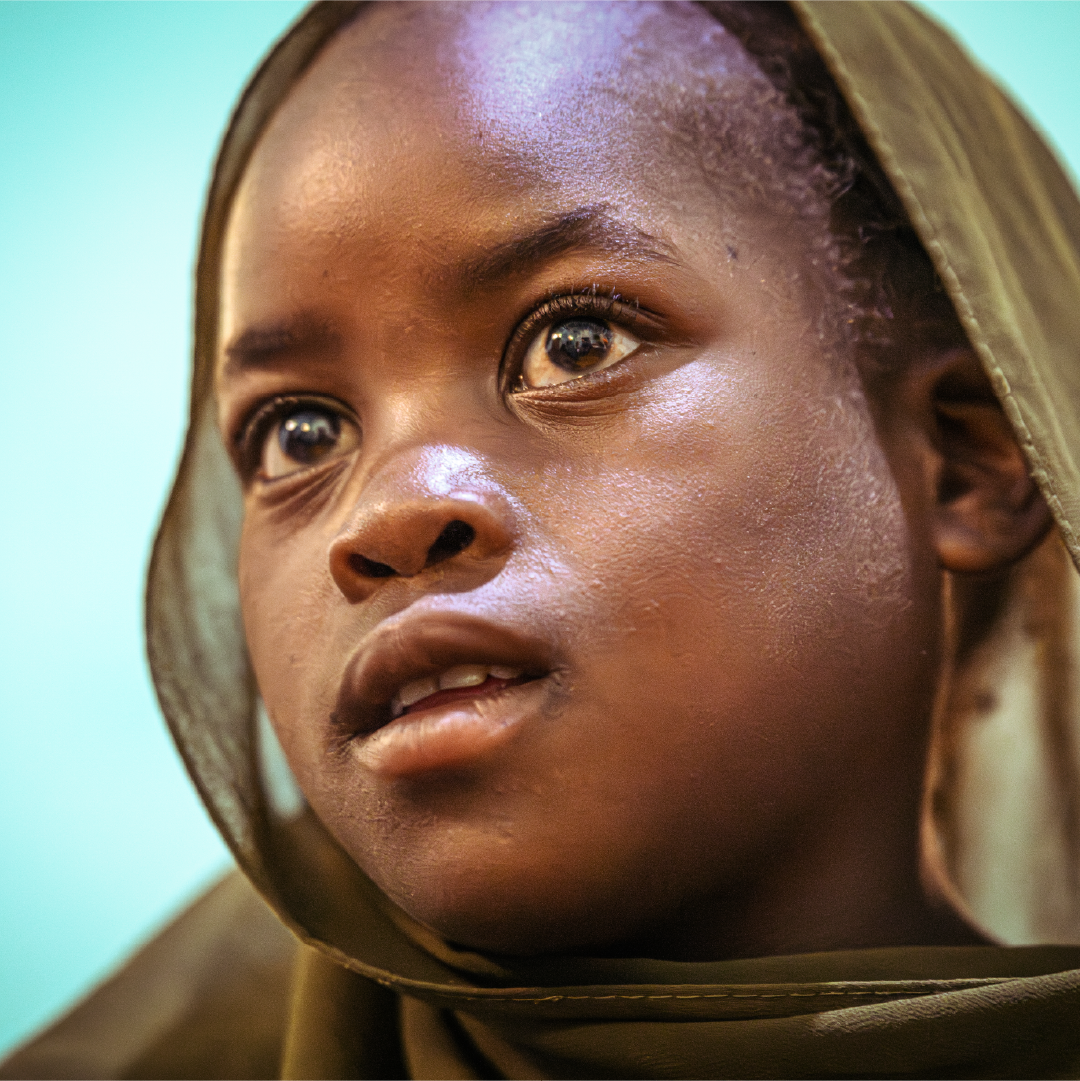
CONCLUSION
The Cost of Inaction
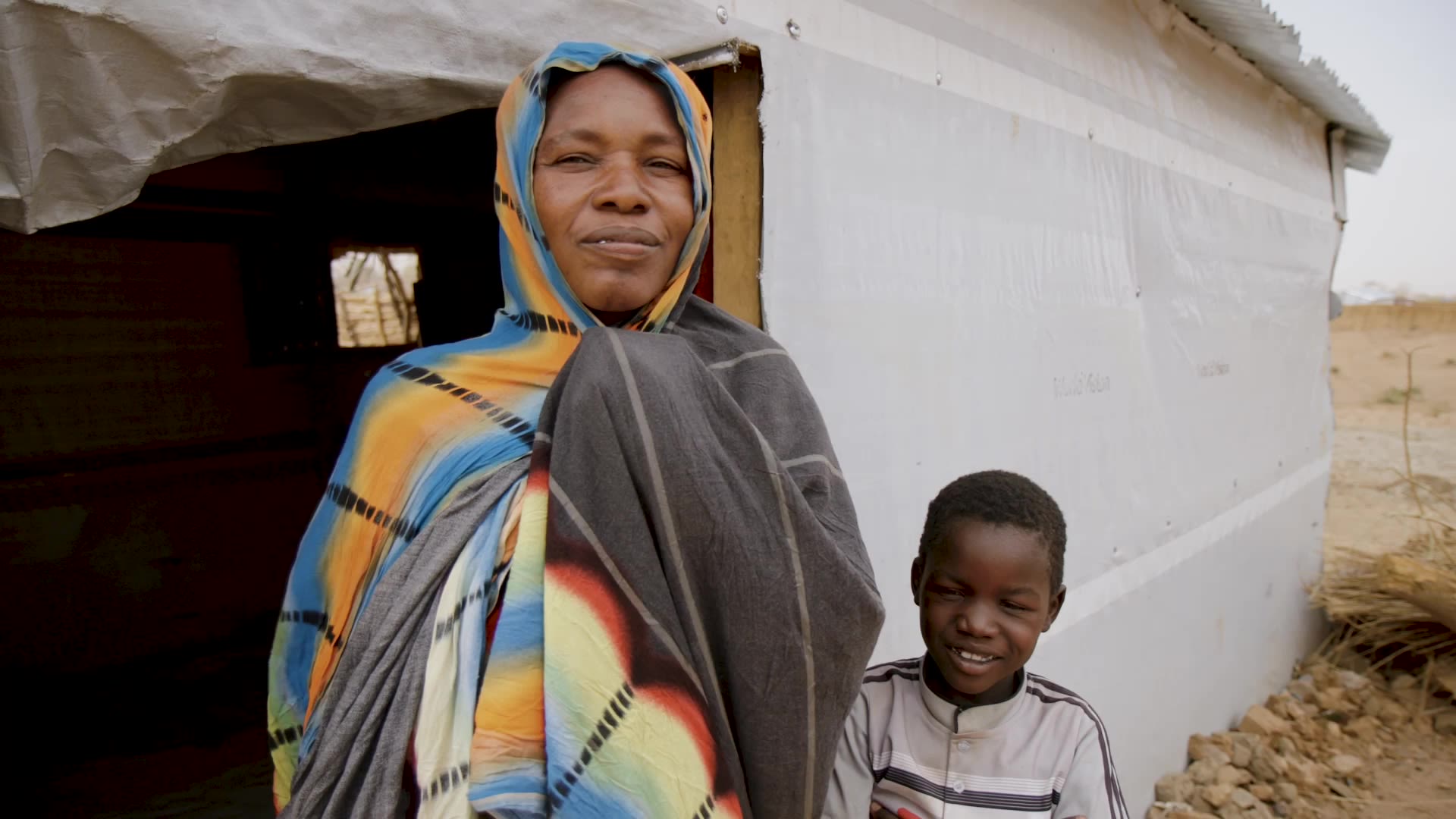
The cost of meeting the needs of Sudan’s hungry families and children may seem high, but the cost of inaction is far greater: an entire generation of children are being robbed of their future.
As Sudan falls deeper into the abyss, the window to avert famine, its impact on mental health, and protect children and families from violence is rapidly narrowing.
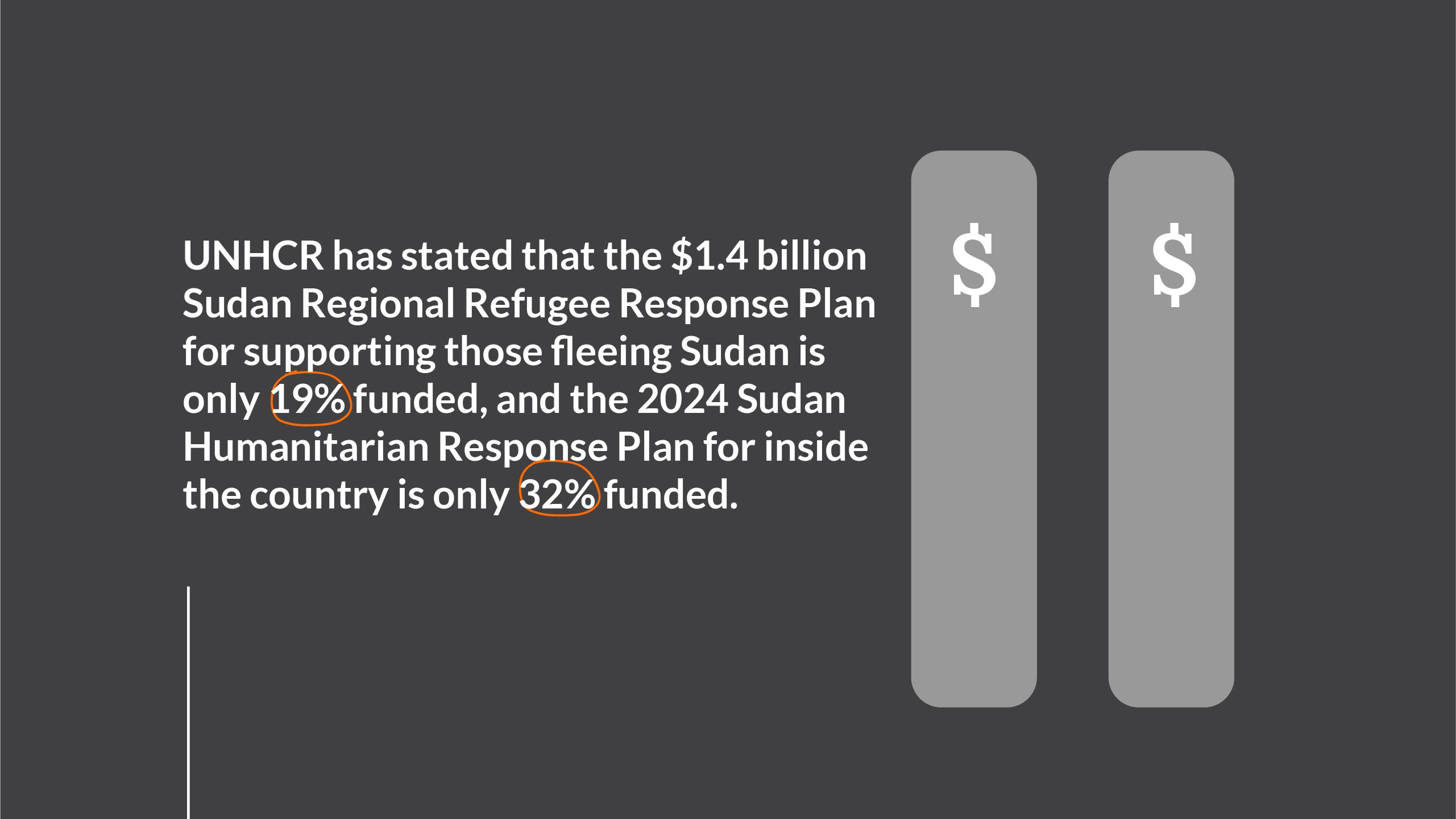
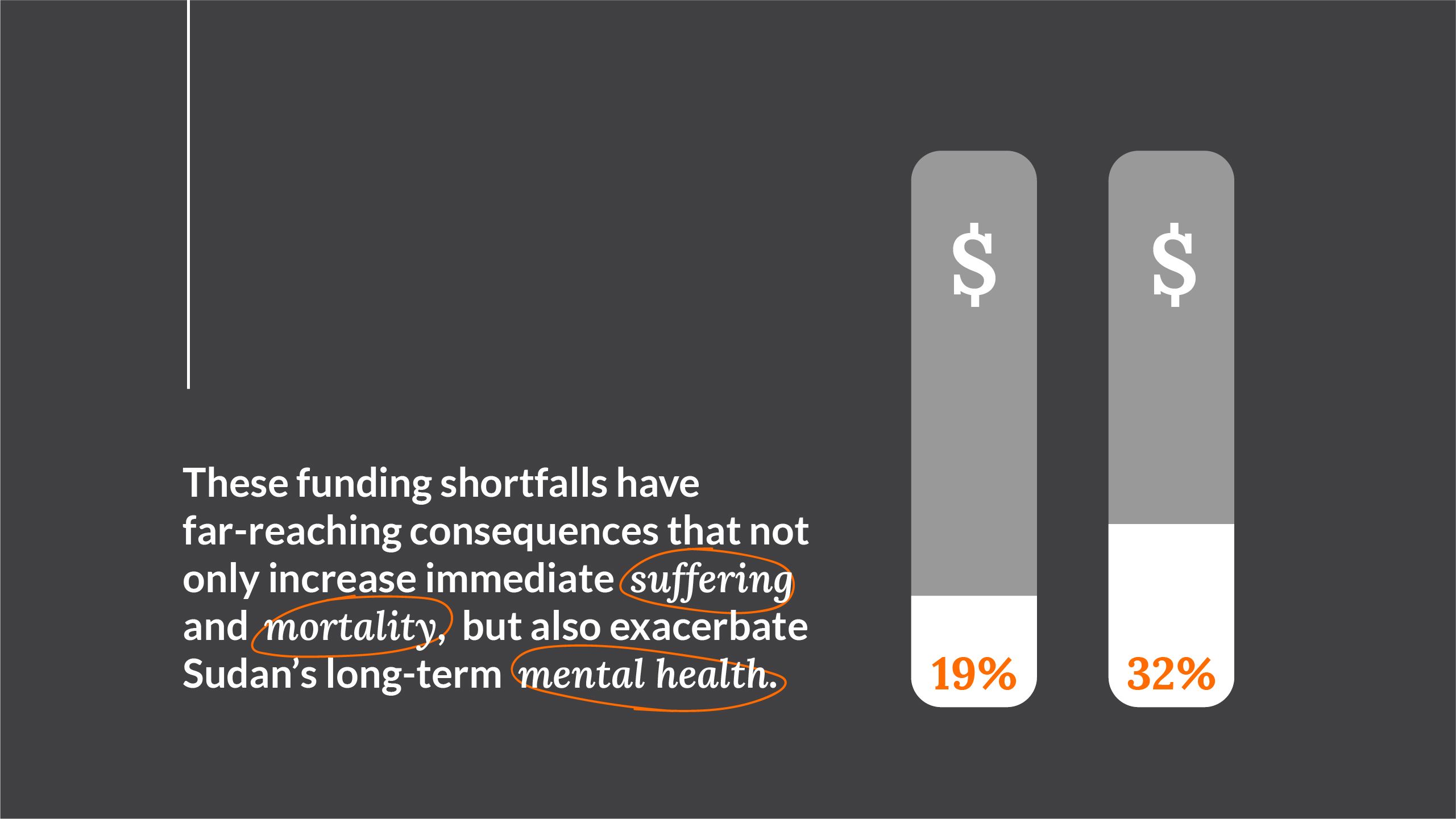
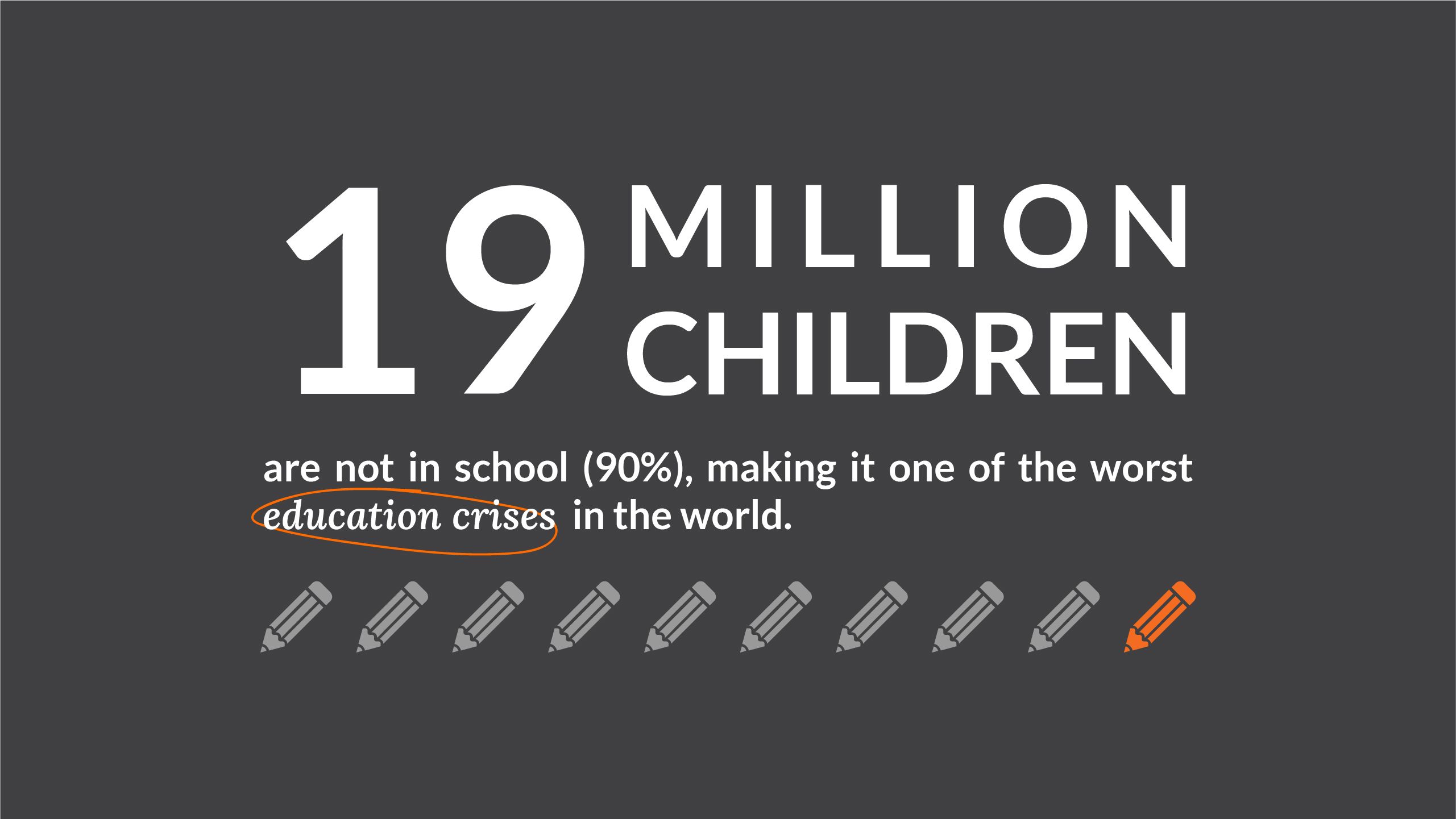
“Without access to education, a generation of children living in conflict will grow up without the skills they need to contribute to their countries and economies, exacerbating the already desperate situation for millions of children and their families.”
— Inos Mugabe, World Vision Sudan Operations Director
The conflict in Sudan has triggered an unprecedented humanitarian crisis, especially for children.
The global neglect of Sudan and significant shortfall of international support is unacceptable.
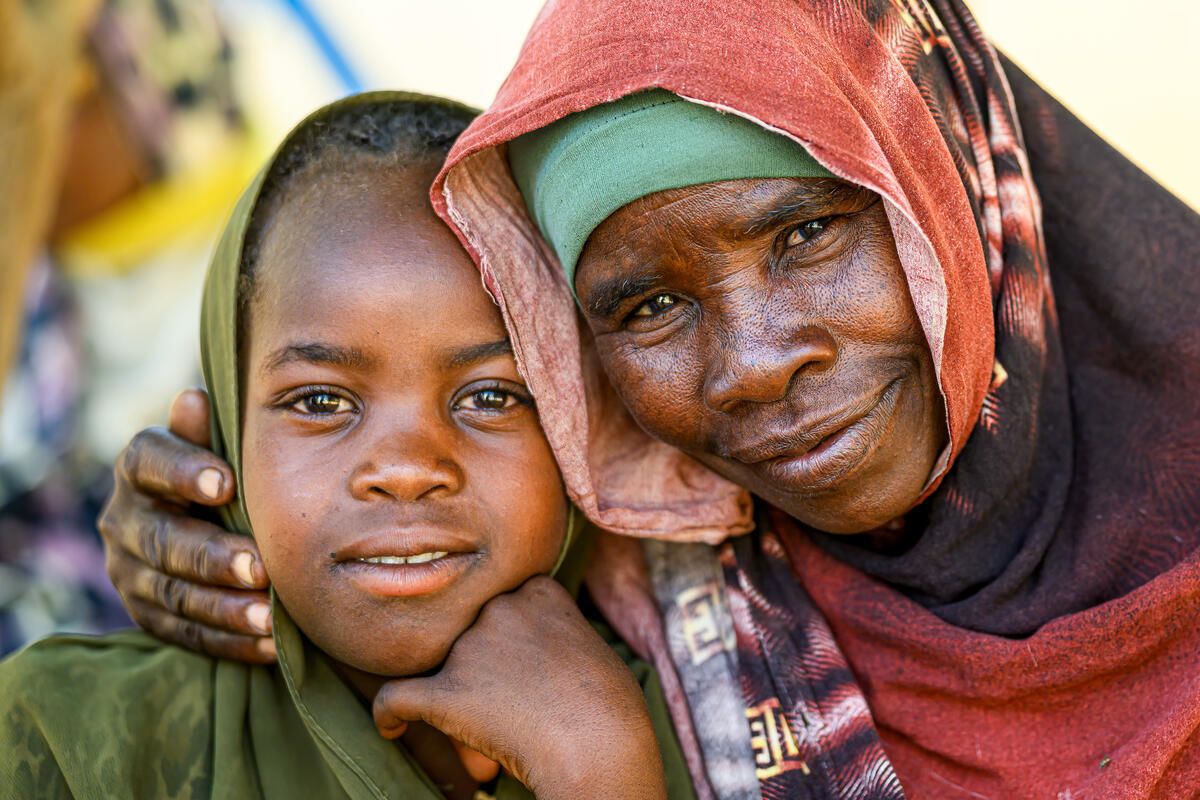
World Vision is calling on all parties for:

Cessation of hostilities in Sudan

Unhindered humanitarian access
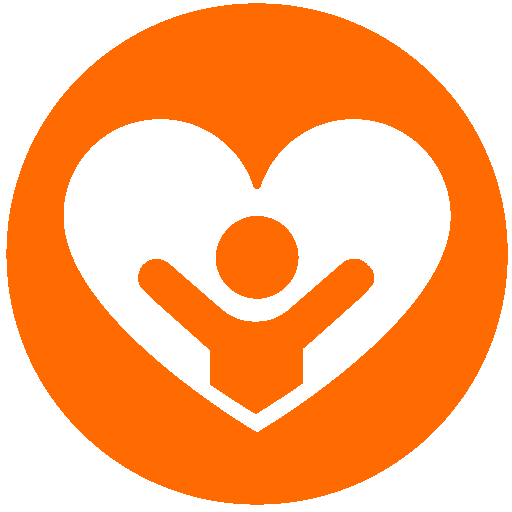
A prioritisation of and protection of children

Full funding of the response plans
Download the full report
Read the full report for all source material, more information, case studies, and to learn more about what we are calling for.
* Please see the PDF version for detailed sources and footnotes for all facts and quotes found on this page.
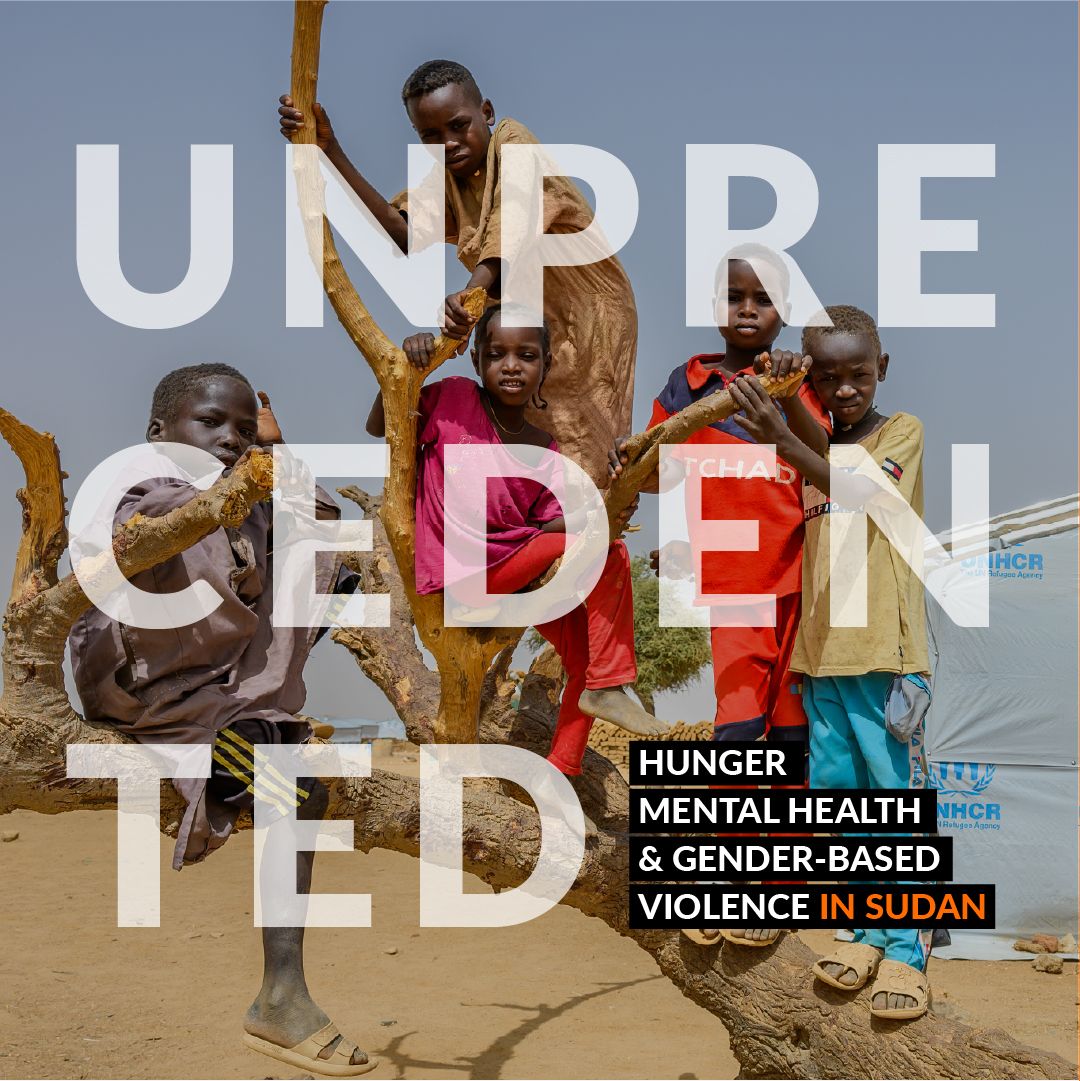
Beyond the report, meet the children of Sudan and listen to their stories:
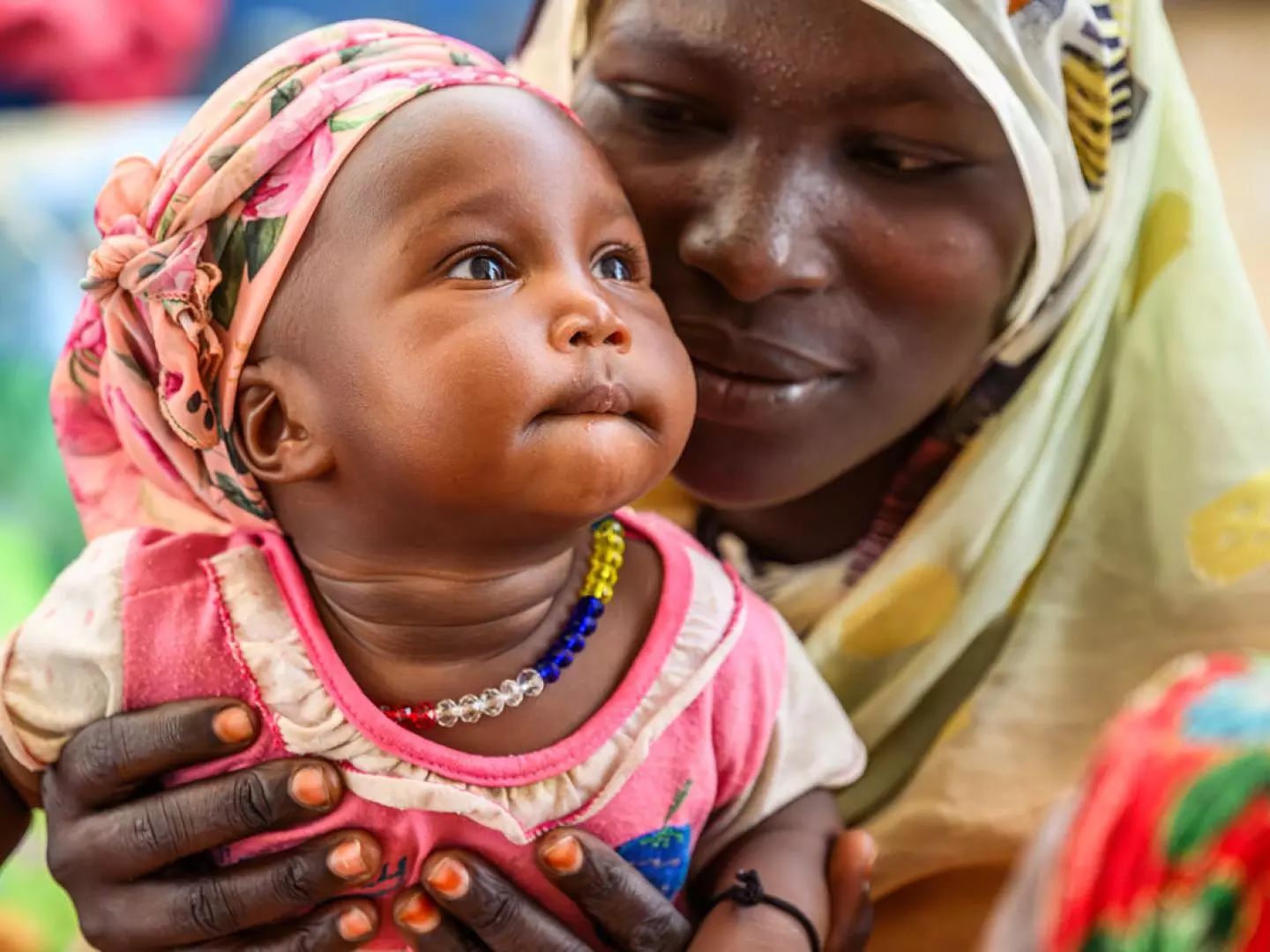
Adam and Adeeb
Tahani, age 20, and her 21-month-old twins, Adam and Adeeb, are among refugees at the camp’s nutrition center...
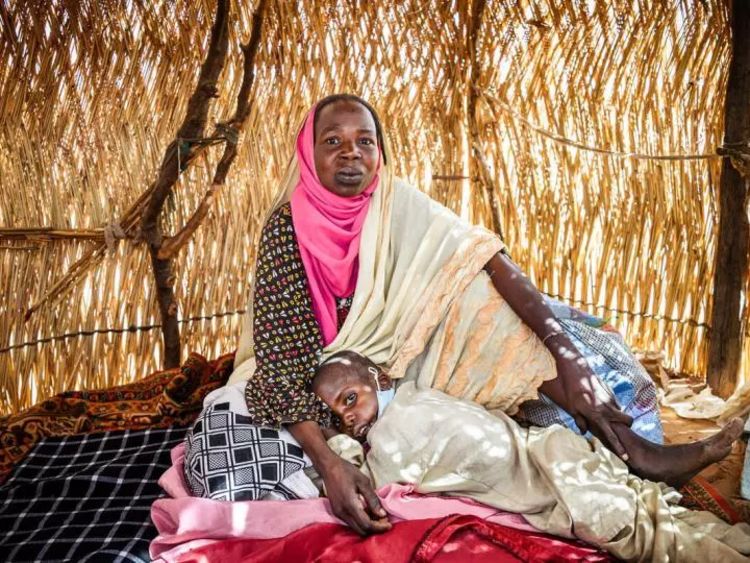
Adoum
For Adoum and his family, who abandoned their house in Sudan because of the war, the journey to Chad was terrifying...
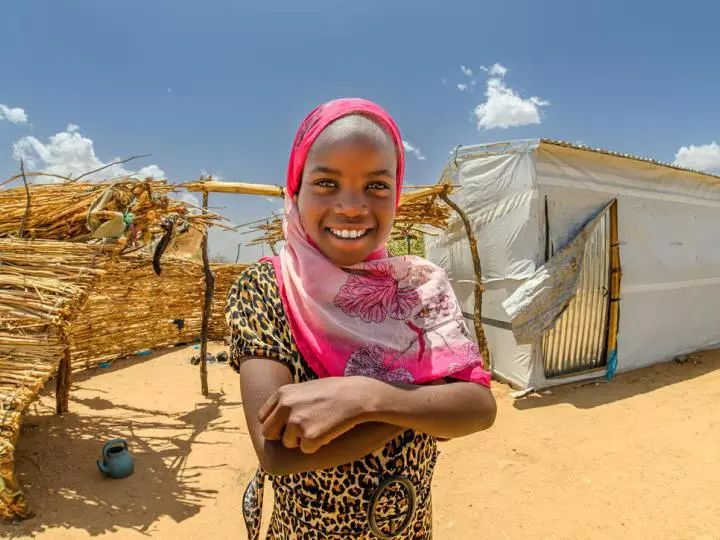
Rachida
Within minutes, Rachida lost her parents and siblings. She is now among 40,000 others living in Metché refugee camp...
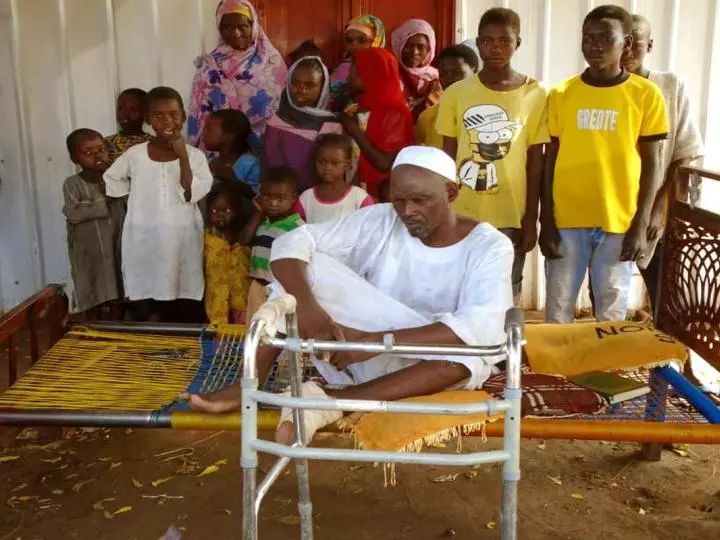
Najwa
Najwa tells her journey as a displaced child in her own words: "We led a happy and secure life before the conflict, we never had shortage food in our house..."

